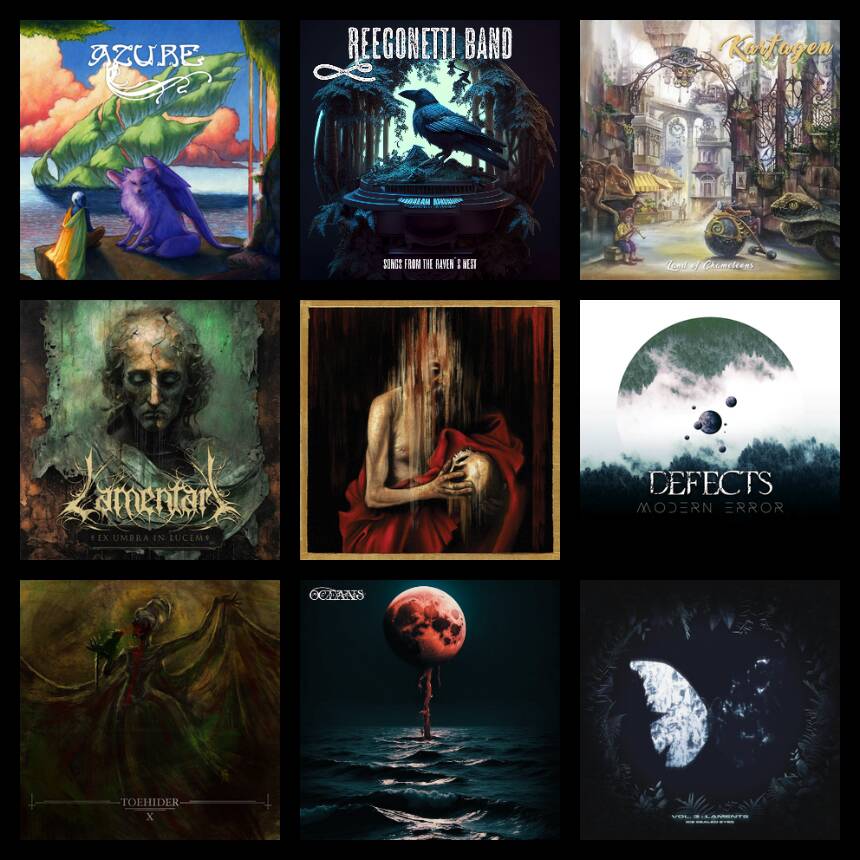
Interview with Rivers of Nihil’s Adam Biggs: “Our band hits its biggest strides when we have these big shake ups!”
Hailing out of Reading, Pennsylvania, Progressive Death Metal powerhouse Rivers of Nihil have established themselves as major players in the genre. Since their foundation in 2009, they have crafted their work (pun intended) over the release of four albums, hitting near-mainstream success on their stellar 2018 release “Where Owls Know My Name”. Coming through Munich in a large-scale show (upgraded to the large venue Zenith, normally reserved for less extreme acts) supporting Lorna Shore, The Progspace got to sit down with vocalist and bassist Adam Biggs to discuss the latest developments in the band.
Note that Adam was featured in an extensive video interview as part of The Progspace’s Progtalks series in 2021, where fans of the band can dive deep into the first years of the band:
Hello Adam, thank you for taking the time to talk to The Progspace again! I’m glad that you’re back in Munich already!
Yeah, good to be back!
How has the feedback to “The Work” (2021) been, now that it’s been out for a while?
It’s definitely very interesting and different to the previous record’s [“Where Owls Know My Name”, 2018] reception, which was a kind of immediate splash success. Everybody was very celebratory about it for the most part. “The Work” felt like it took a lot of people by surprise. Your typical heavy metal fan is usually just expecting more of the same, album to album. We specifically didn’t want to deliver that.
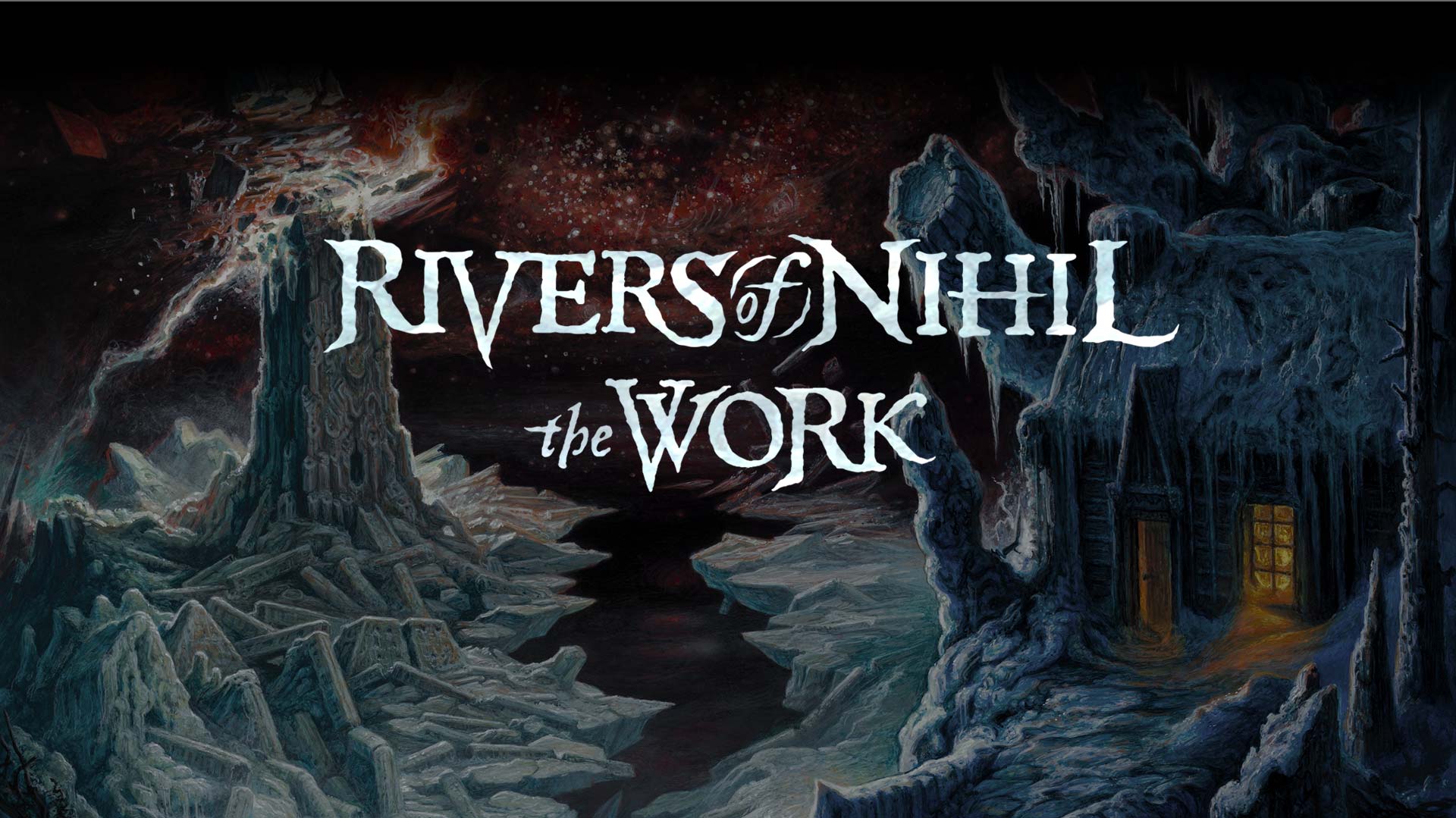
We wanted to do something that was pointedly more challenging. That’s something that we felt was more varied and interesting – chaotic, and even kind of difficult to listen to in certain points. It’s not as immediately accessible. We did expect a lot of people to grab on to it slowly. And it’s been two years now. I feel like I’ve seen appreciation for that record grow steadily. There are a lot of bands out there who could receive that immediate kind of wariness from their fans and might shy away from it. To then put out something that’s “going back to our roots” or whatever. But honestly, I kind of enjoyed the strangeness of it.
It is a bold move these days, with such short attention spans everywhere. You make music that takes like several spins to really understand it.
That’s what I like as a music listener; that’s what I enjoy the most. I don’t love the current way that music is consumed. It comes on a streaming device; you can listen to a couple songs and then you just jump to the next thing. I like how it used to be: Go buy a record, you have that purchase kind of feeling to it. You’ve got to spend some time with this thing now and really absorb it, especially if it’s a band you’re really interested in. That’s the kind of experience that we gear the music towards.
I could see your music being more attuned to that kind of behavior. There’s not that many people listening to extreme kinds of music, but at least those are the ones who have a closer relationship to the albums, right?
Yeah!
After the release of “The Work”, you’ve had your vocalist and founding member Jake Dieffenbach is out of the band. What took place?
Quite a lot! We haven’t really given too many specifics; I think some people feel that maybe it was sort of an amicable departure. But that really wasn’t the case. He was let go. He was having a lot of trouble in his personal life, doing things that were interruptive to the very busy schedule that we had. He just couldn’t really keep himself together between tours. It was always just kind of a mess and it spiraled up and out in ways that we couldn’t even really foresee. There was a lot of dishonesty with it on his part and just gross irresponsibility. It was impossible to maintain a positive working relationship there.
So it was in conflict – you are a professional band, a business that was not working together because of these issues?
Yeah. We tried for a long time. We had conversations internally about issues with Jake; it had been discussed prior that he may be more trouble than he’s worth. We fought that for a long time, until it got to the point where he almost made the decision for us. There was too much going on, it had gotten to the point where we couldn’t take responsibility for him anymore.
You ended up letting him go out of the band, and then you stepped in to take on primary vocals. How was that decision made?
Well, this decision happened mid tour. Jake had to leave a running tour abruptly. In order to continue, we slowly had me assume the role of the primary vocalist. On this tour where we performed “The Work” from start to finish. We had started doing it by just delivering an instrumental version. After a while it just felt like it wasn’t working. One day I just decided to give it a shot, just sang everything and played at the same time, and we’ve been doing it that way ever since.
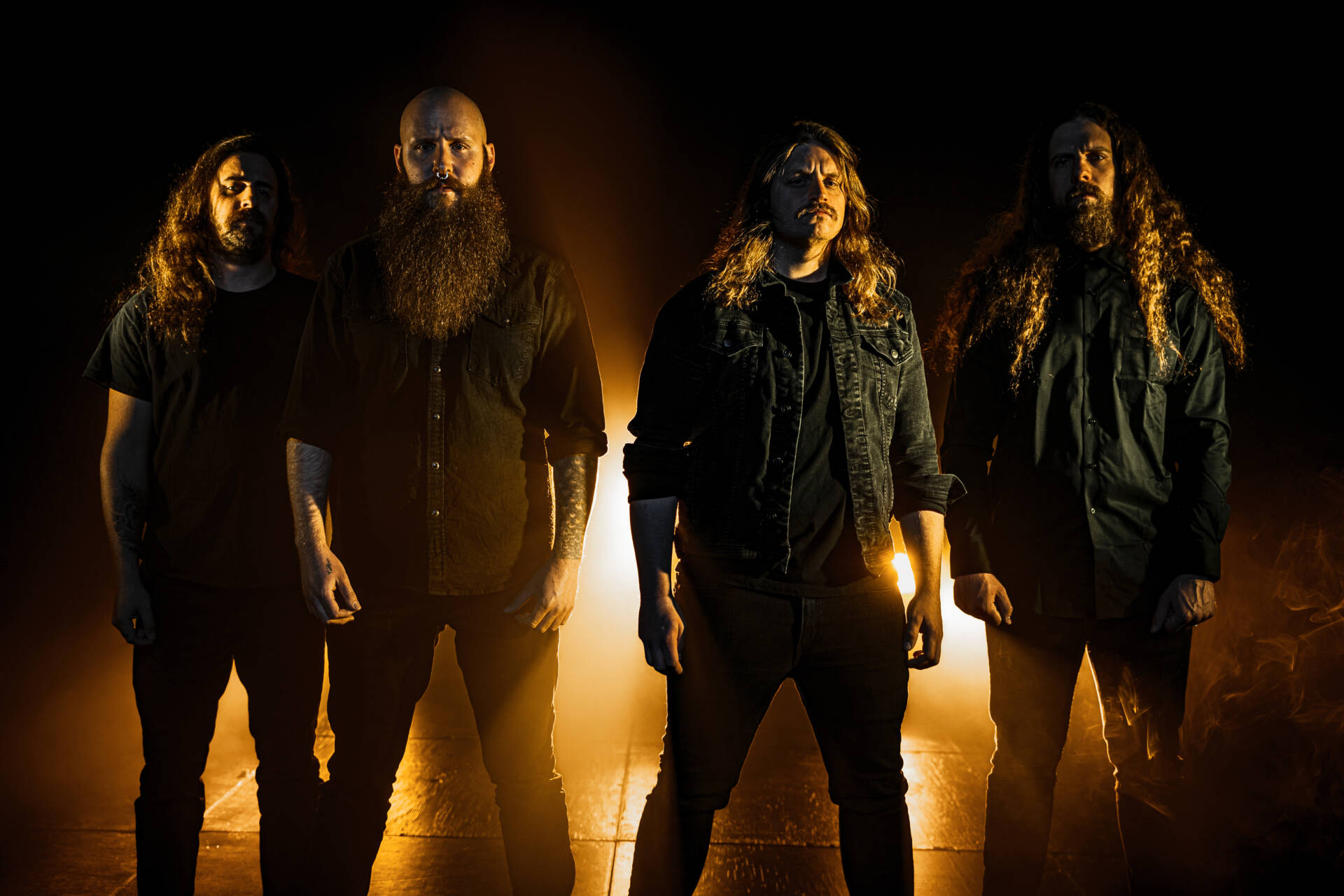
Photo Credit: Mike Truehart
You play quite technical stuff! You could just start singing along while still playing the same stuff?
Yeah [laughs]. Some of it can be tricky. But, you’ve got to do what you’ve got to do, right?
It’s not the first time you’ve been singing: In your older bands, Age of Plague and Dissian, you also did vocals. Is this like a return to known duties for you?
Dissian was Brody’s [Brody Uttley, guitar] and my first band together. This was a long time ago! Yeah, I was also the primary vocalist there for a while. When we joined Rivers, Jake was already part of it. So I just sang background stuff, until this thing happened. I’ve always been in a primary role like organizing vocal parts and writing most of the lyrics and stuff like that. So it’s all my parts, just like it’s been in my head forever. I guess, doing both at the same time kind of came naturally.
There are only four seasons, so your visual cycle [the band’s first 4 albums feature artwork representing the four seasons] is likely coming to an end. The new singles that you’ve just released, ‘The Sub Orbital Blues’ and ‘Hellbirds’, seem to be exploring quite new directions, both in terms of the sound and the aesthetic. It’s not the orthodox stuff that you would expect a metal band to look like. What has been your intention? What’s been your thought process as you’re going into making new material?
Well, I feel like our band hits its biggest strides when we have these big shake ups; when we have to regroup and figure out how to go forward. It happened at the inception of the band, around the time we released “Monarchy” [2015], Owls too, and even “The Work” to a degree. So this isn’t really any different. There’s a concept at play here. We’re sort of just deconstructing the whole idea of the band; juxtaposing the ideas about where we come from, what our intentions are, and our place in the world around us. We’ve become globetrotting musician types over the years, and not just hometown, local boys. So our future stuff is going to move even further away from these esoteric, elemental things, like seasons, and more into our real lived experience as people – and what that means on the grand scale of things.
In that sense, is it related to the naming of “The Work”? The influence or the experience that you’ve had, music being your job, like constantly touring?
Yeah. I mean, it’s all still a work in progress, this new material. It’s a continuation of that sort of vibe, but in that more real-world kind of vein. I like the verbiage and the communication style of that record more than previous ones; I think because it’s more based in reality. Since the beginning of this band, I’ve been trying to figure out ways to communicate more clearly to the listener as we go along. It’s a pretty big barrier of static in Death Metal, between what it is you’re feeling and how to get that to the audience, in a way that’s sophisticated. There is a lot of interference. There’s a lot of growled vocals. You can communicate things in an elegant way, but I’ve always been trying to figure out more different sounds and ways to communicate a broader range of ideas and feelings. I feel like “The Work” is the closest thing we’ve gotten to that so far. And I hope to continue that trend with the future material.
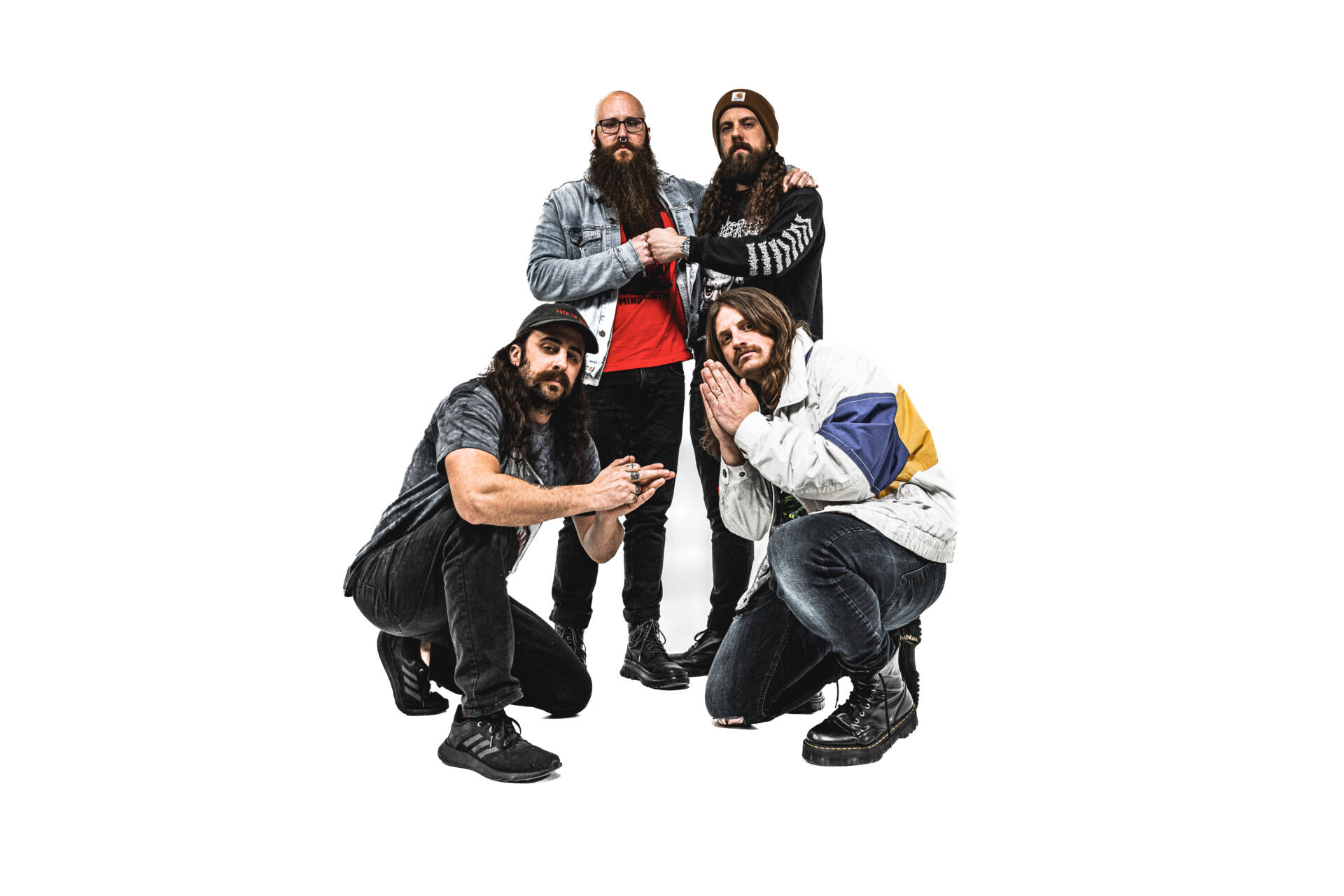
Photo Credit: Mike Truehart
I had to look at the lyrics in preparation one more time. That’s some pretty heavy stuff in there – certainly not easy listening material in terms of the content. What’s your interpretation for those two songs?
‘The Sub Orbital Blues’ is a call of desperation for the times that we live in. I was thinking a lot about the scrambled state of the world and the way information travels these days. You can’t really depend on anything that you see or hear. It’s all very strange. There are so many different intentions going around. There are people starving and dying, people are poorer and angrier than ever. There are also people who are just rich beyond imagination, who can just blow up rockets in space, or pass your digital information through the fucking sky to somewhere else. It just came to this conclusion in my head, that it’s like our dreams will orbit the earth forever. For some reason our generation might be the one that starts to transcend mortality, where there’s going to be digital copy versions of us that live forever digitally and encoded in space somewhere. And a lot of it is just meaningless junk. It’s a bit all over the place, a big concept to lay out in a four-minute song!
‘Hellbirds’ is similar. There has been uproar from a lot of people online about the lyrics of that song. They are from the perspective of somebody who’s not very smart. It’s about a guy who is raised in a society that doesn’t value intelligence and just solves problems with drugs, violence, stupidity, and wasting your time. And it’s about the slow slide of leading this type of person to essentially being cannon fodder in wars that they don’t understand, can’t control or prevent. Those little hints of the fear of big wars are hard to catch within the lyrics, but they’re there. So that’s the primary sentiment of the song – but in the end it’s just a heavy song. It’s also meant to just be fun lyrics to scream live!
In the ‘Hellbirds’ music video, it says it’s based on a true story. What’s the story?
[laughs] It’s based on a friend of ours from back home who was ejected from the very bar that we filmed the video in for.
Quite authentic!
Yeah! He was thrown out for pulling his penis out several times.
So you reenacted it?
To a degree, yeah. The video stars our good buddy and merch guy Stephan [Lopez], just being that guy. It’s supposed to be a fun kind of take on those early bar shows that our band used to play all the time. I’m sure plenty of bands out there still do.
You’ve been building a family. How has fatherhood affected you as a creative artist?
It’s interesting. It’s still a very new thing for me. I’ve only baked so much of this new part of my life into the existing one. But it’s there. Some of these new songs have that sort of fear of a dark future feeling to it, that you get when you bring a new life into the world. I’m almost 36, so I’m a little late to the game in the whole fatherhood thing. By the time my kids are my age, I’ll be 70 or something like that. It’s all right. You ponder about the future that you’re going to have your kids live in. I try to have a positive mindset in my day-to-day life, hoping that things will be alright. But given the fact that I play in a metal band, there I explore the darker feelings associated with that. Ultimately it is about a fear of a dystopian world that I may have brought children into.
It’s a crazy thought. I’m not sure if I interpret it correctly, but when I listen to “Where Owls Know My Name”, I envision a certain storyline, a disconnect between a father and a son. The son is leaving a dystopian earth because he’s pissed off at the previous generation having destroyed everything. As a father myself, that just struck home. How would I explain later to my kids why things are the way they are now?
There is some father son kind of stuff on that album. But it’s more from the perspective of the son, because at that point like a family wasn’t really part of my life. The song ‘A Home’ is essentially a reflection on my father’s life – about the sort of vagabond way of living that was passed on to me almost. It’s an album about just basically dealing with your own inner misery and working through loneliness.
As a creative person and an artist, how do you feel about artificial intelligence? When do you see it becoming more and more of a thing?
It’s either a revolutionary tool or a look into hell – one or the other. I don’t think there’s any middle ground. Looking at A.I. generated art and text even, there’s something that’s just so almost human about it. It’s like you’re looking at that hell to me. Eventually, with the way that stuff works, you’re going to be looking at a copy of a copy of a copy of a copy. I can only imagine how degraded the capacity for true creativity could become if we rely too much on it.
I have some bass questions if I may: How did you get started on bass? Who were your main influences when you started?
Well, when I first started, I didn’t even really understand what the instrument was. I was 12 or 13; my dad had been a singer-songwriter type my whole life. I was always around guitar playing and songwriting, but I didn’t know what a bass guitar was. When I started to get interested in music, I asked for a drum set for Christmas. Slowly I was sold on “Oh, how about a bass? You want to get it?” I didn’t know what it was, but I said okay. I thought, hopefully if I play it, girls will like me – yeah, that shows how much I knew. [laughs] Stuff I liked back then was like System of a Down, Korn and Slipknot. But I was also into Pink Floyd and Primus and things like that.
You’re playing six string bass. What’s your take on that? How do you use the extended range?
A lot of times in this band, it’s mostly used for an extra clanking noise. Some of the higher stuff is just a lot of hard pops and stuff to make that really jagged sound, going along within the riffs. Sometimes I’ll use it for more elegant tapping sections or some jazzier stuff. But most of the time it’s just for noise, honestly. I mainly use a six string because I just don’t like the feel of a five. Anytime I’ve tried to play a five string, it just feels awkward to me. So I’ve been playing six since I was about 18. And that’s just been naturally what I decided to use when we started this band, with the tuning so low.
You tune down to Drop F# – what gauge do you use for the lowest string?
It’s a 160; the nut had to be filed out a bit for it, now it sits in there pretty well. The strings I get have a taper at the ball end to fit the bridge.
You also use slap technique quite a bit. How do you make it work in a heavy music context?
Yeah. It’s just more heavy metallic noise. A lot of times I don’t even think about the bass guitar in the context of this music as being a bass instrument. It’s more of a mid range metal sound that’s happening.
Because the guitars are covering all the lows?
Yeah, the guitars already have that range covered. It’s about making sound effects, like the slap stuff. There’s definitely a lot of Primus in my DNA. Also Korn – hearing Fieldy’s sound, that has no bass to it whatsoever. It’s just clanky sounds that sound cool!
What’s your approach to melodic playing? In the mellow sections, you seem to take on a lead role.
Brody will hand me demos and I’ll just sit there and think about what I think the bass could add to it. Sometimes it’s just root notes. I tend to frantically play a lot of notes. That’s something I try to cut down on. I try to make bass lines that sound fun. Those melodic sections, they tend to be a lot of fun, to just switch gears. That’s also where the extended range comes in handy, going way down deep and hitting that big 160 gauge and making a floppy metallic sound. And then you can find the range of feels warm, bassy and comfortable elsewhere on that giant neck.
Thank you very much for the talk!
Rivers of Nihil is currently on their “The Pain Remains” EU tour alongside Distant, Ingested and Lorna Shore. Remainind dates are:
- 02.12.23 UK Manchester @ Academy 1
- 03.12.23 UK Glasgow @ SWG3
- 04.12.23 UK Cardiff @ Great Hall
- 06.12.23 France Paris @ Bataclan
- 07.12.23 Germany Wiesbaden @ Schlachthof
- 08.12.23 Germany Oberhausen @ Turbinenhalle
To close out the year, they have planned a short US run together with Varials, Currents and Entheos:
- 20.12.23 Worcester, MA @ The Palladium
- 21.12.23 Long Island, NY @ The Paramount
- 22.12.23 Sayreville, NJ @ Starland Ballroom
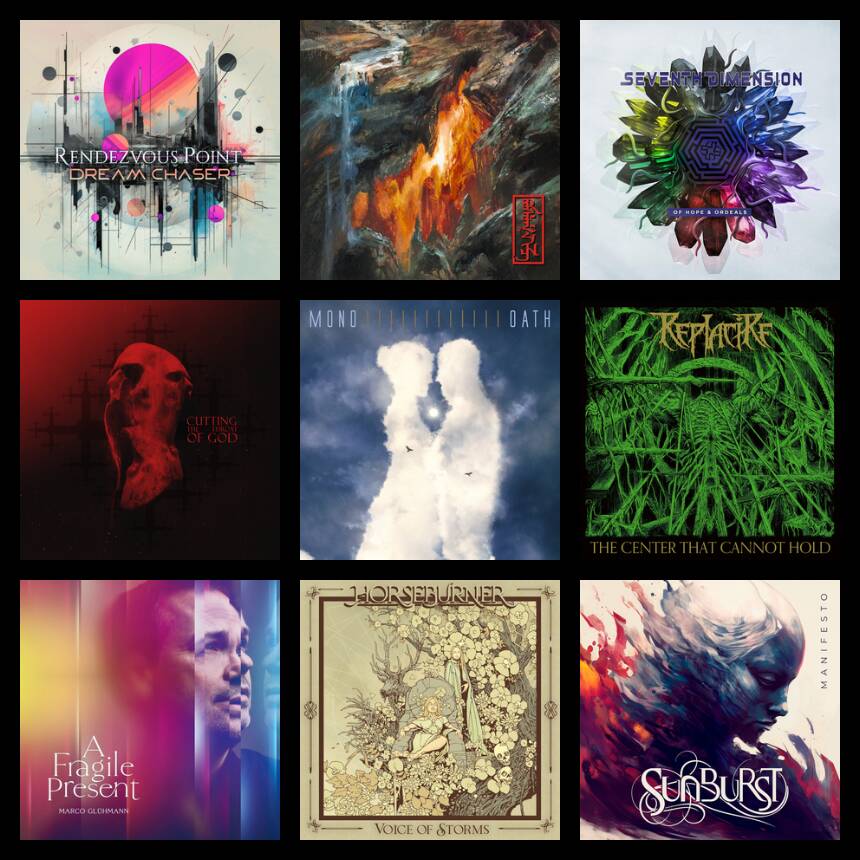
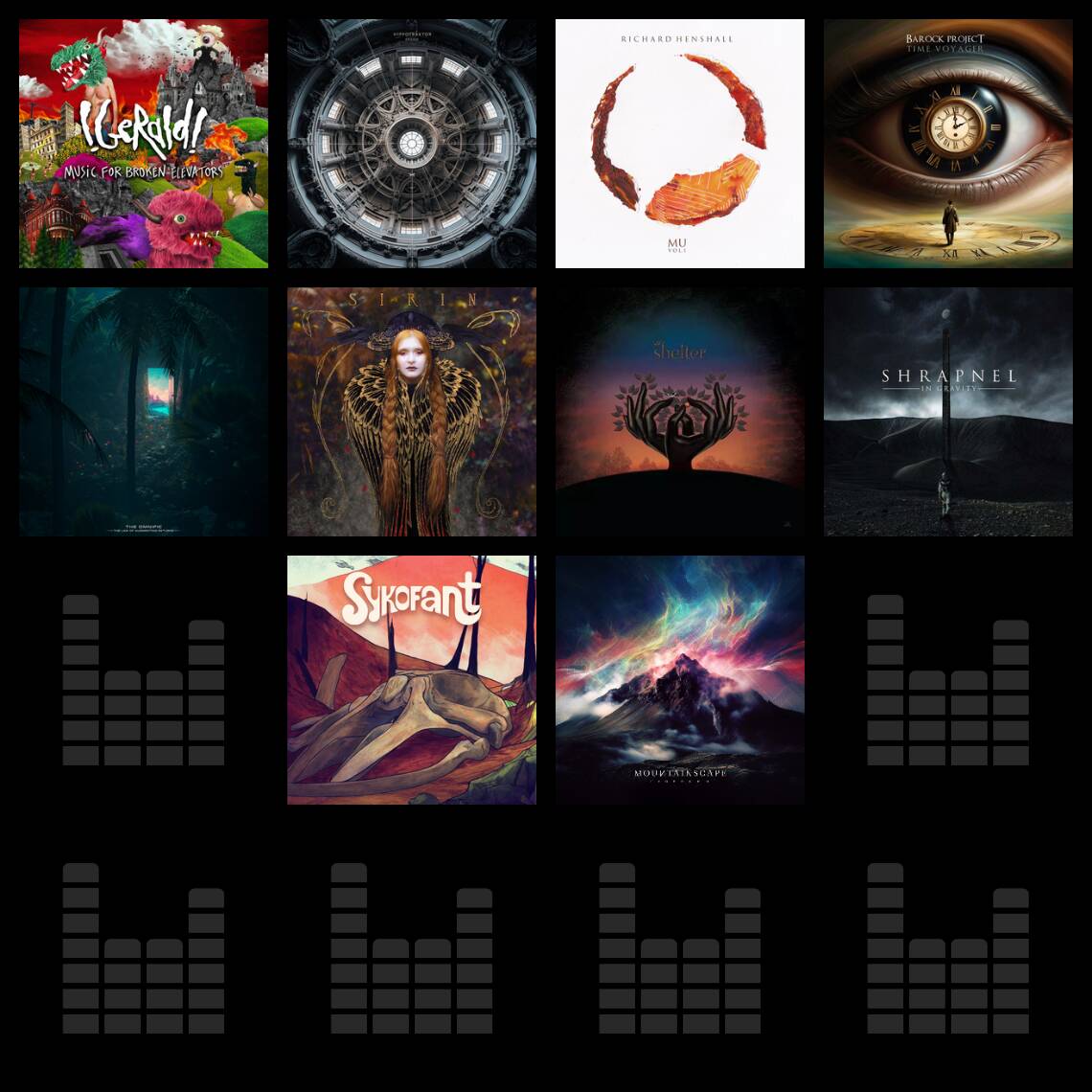
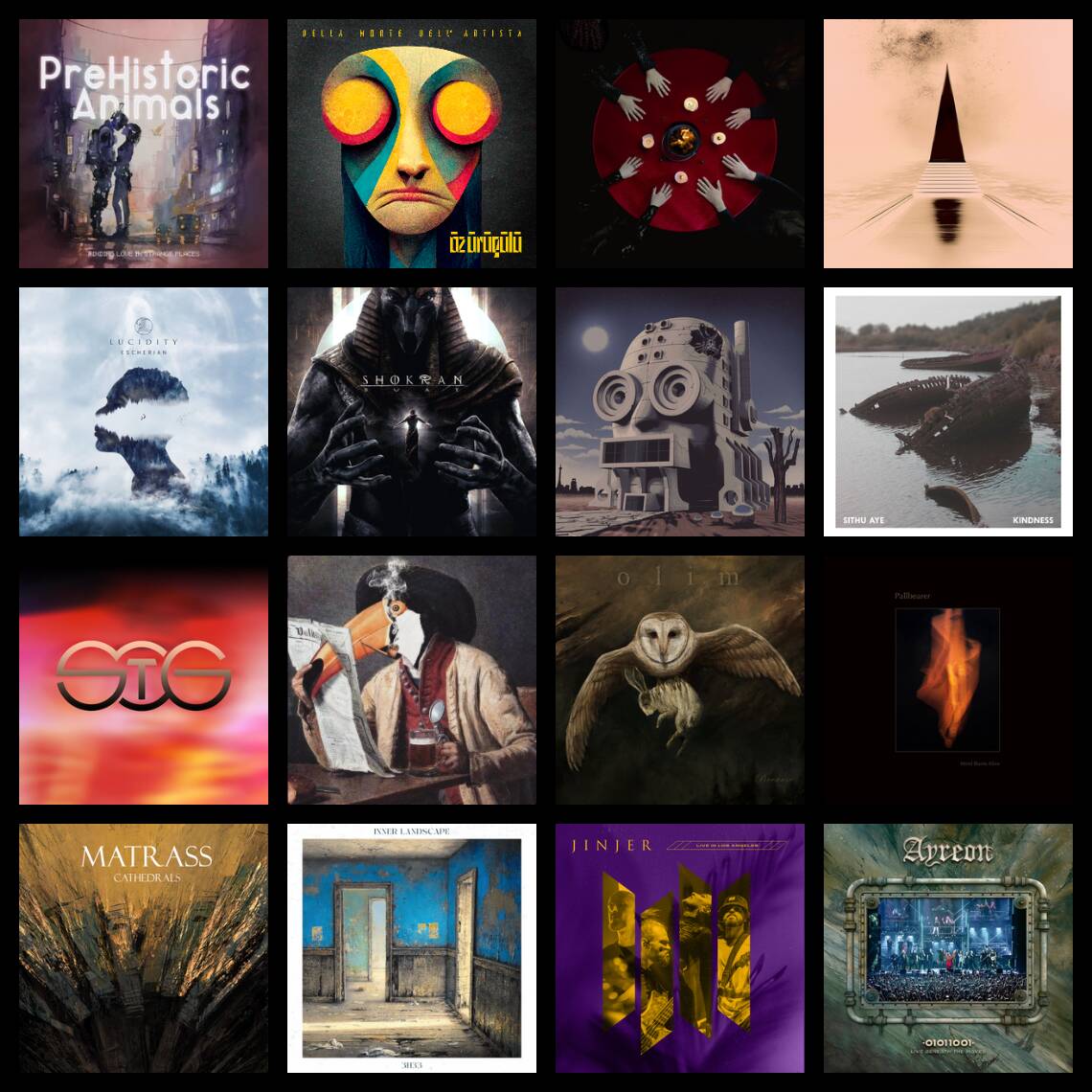

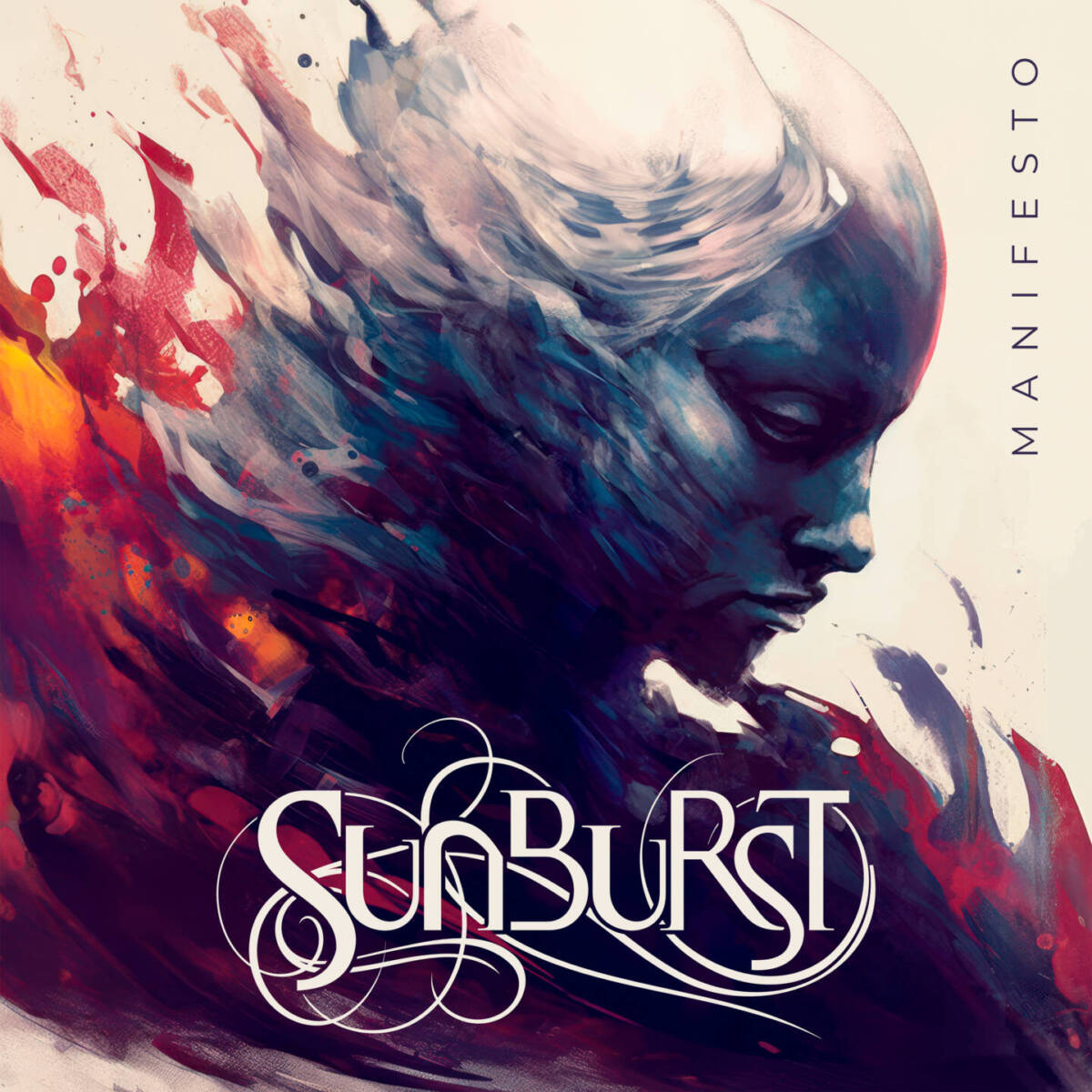
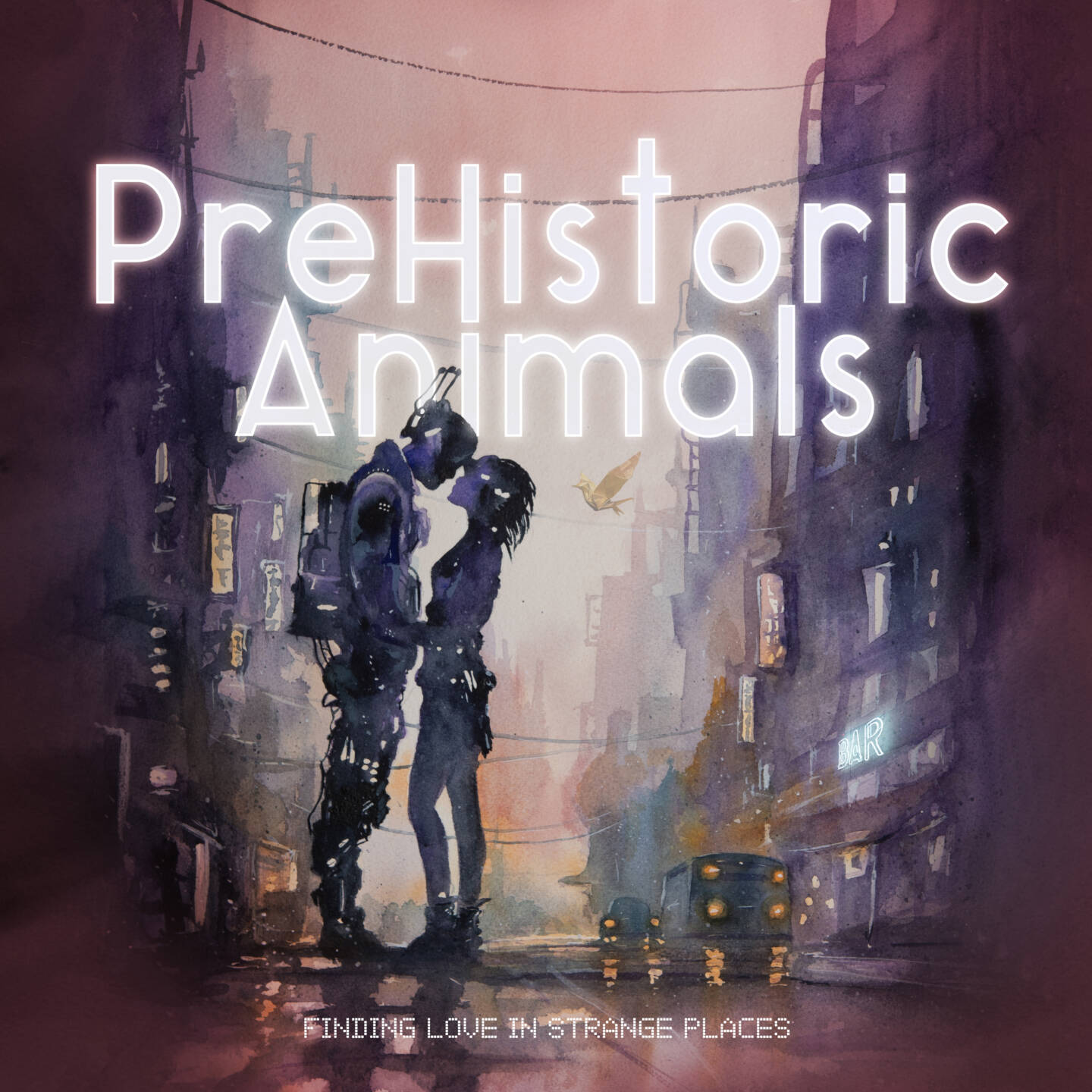

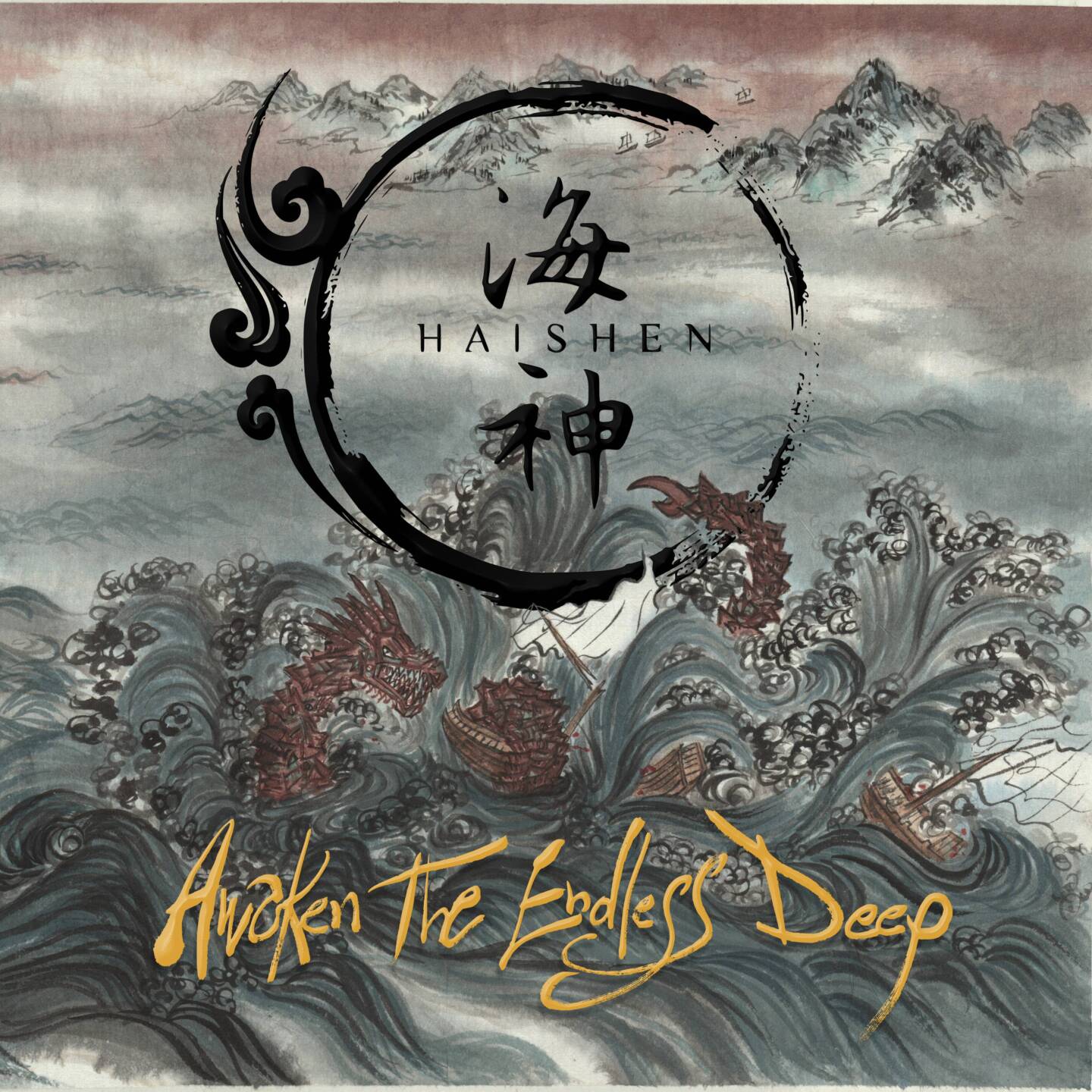
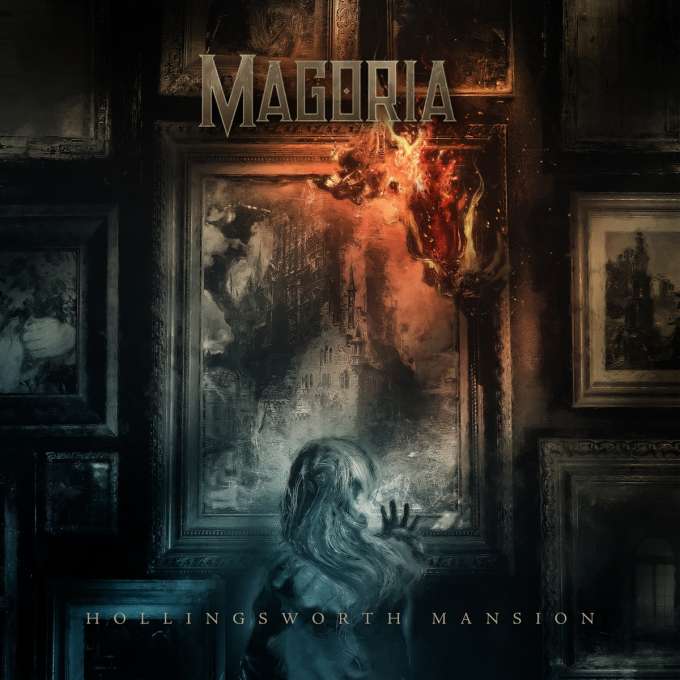
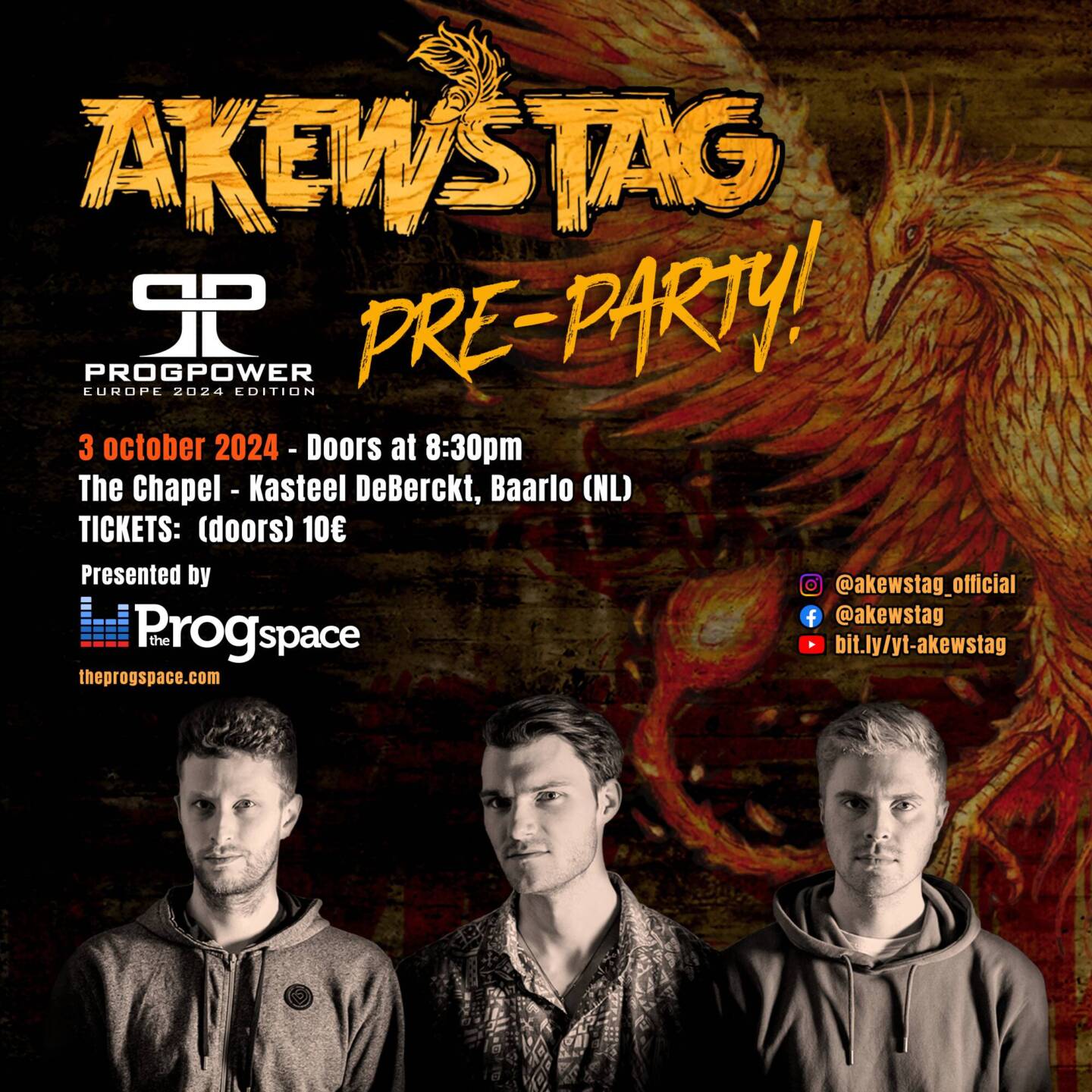
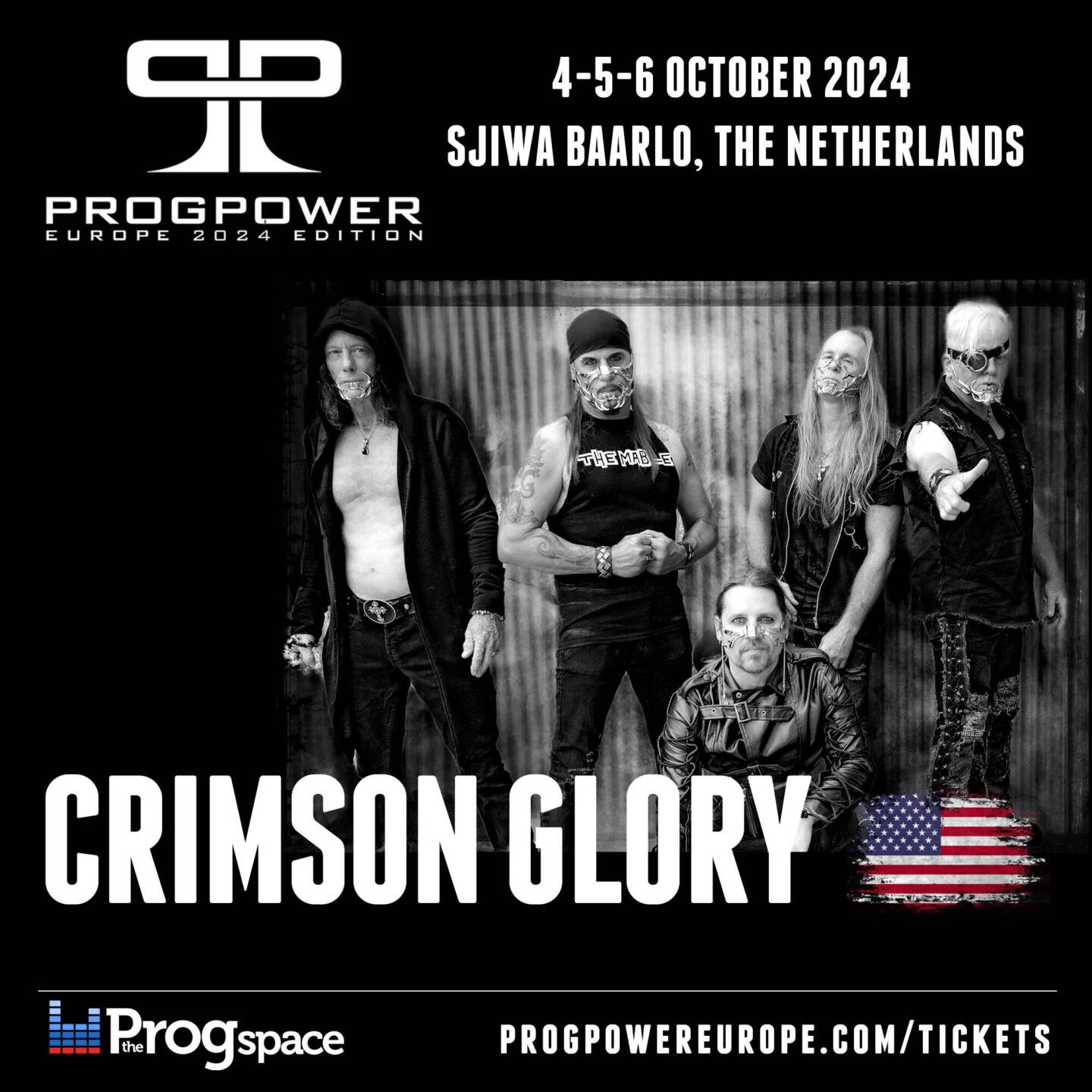
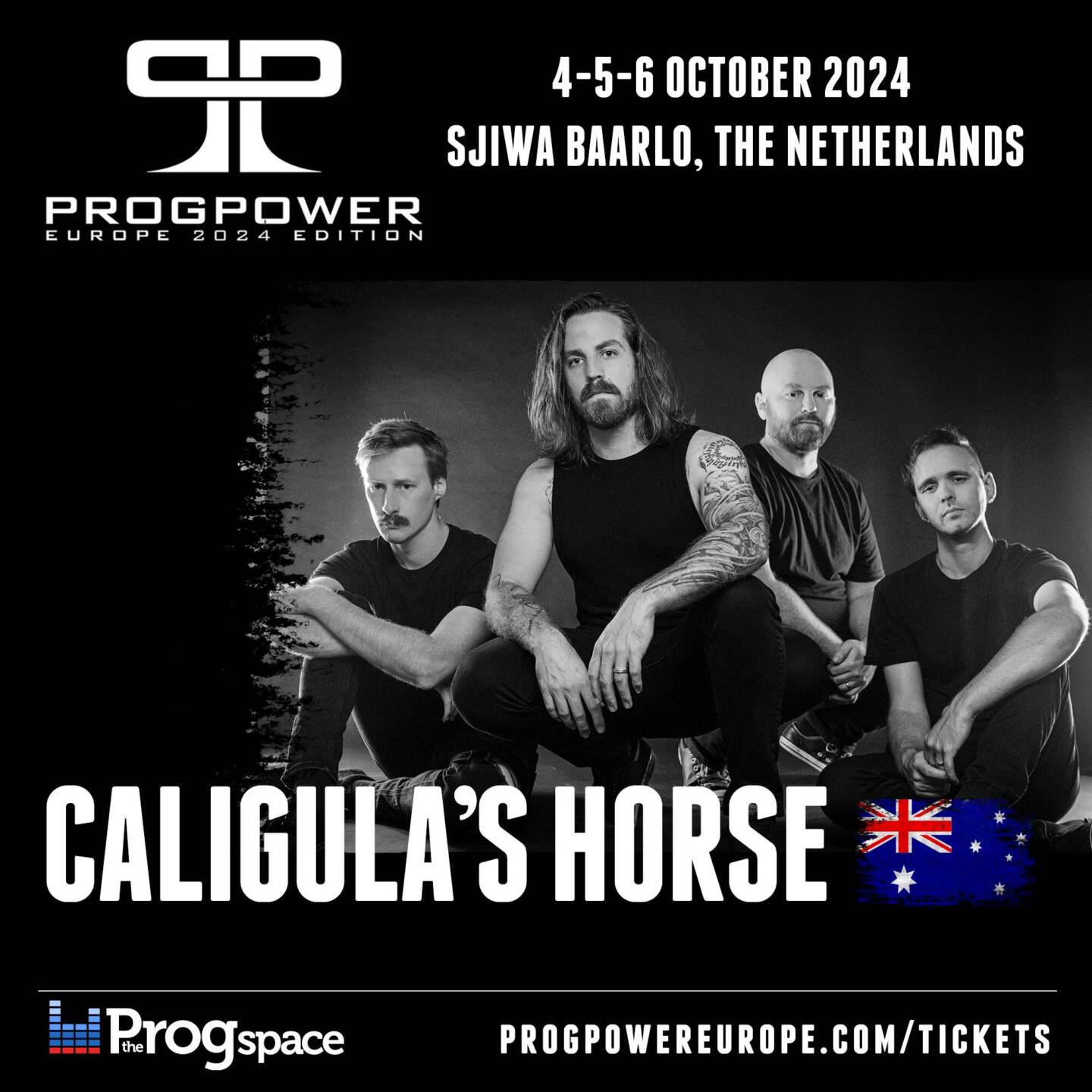
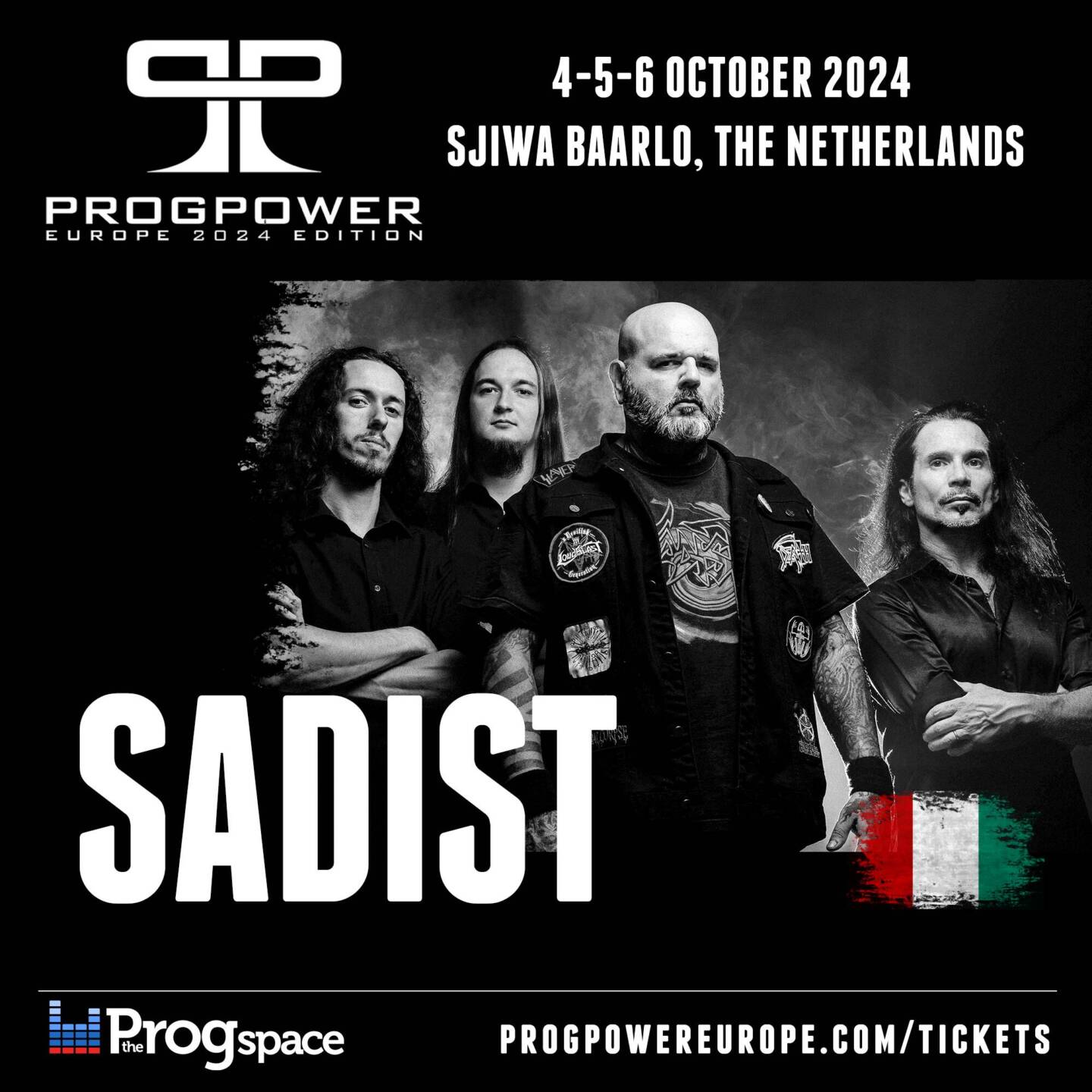
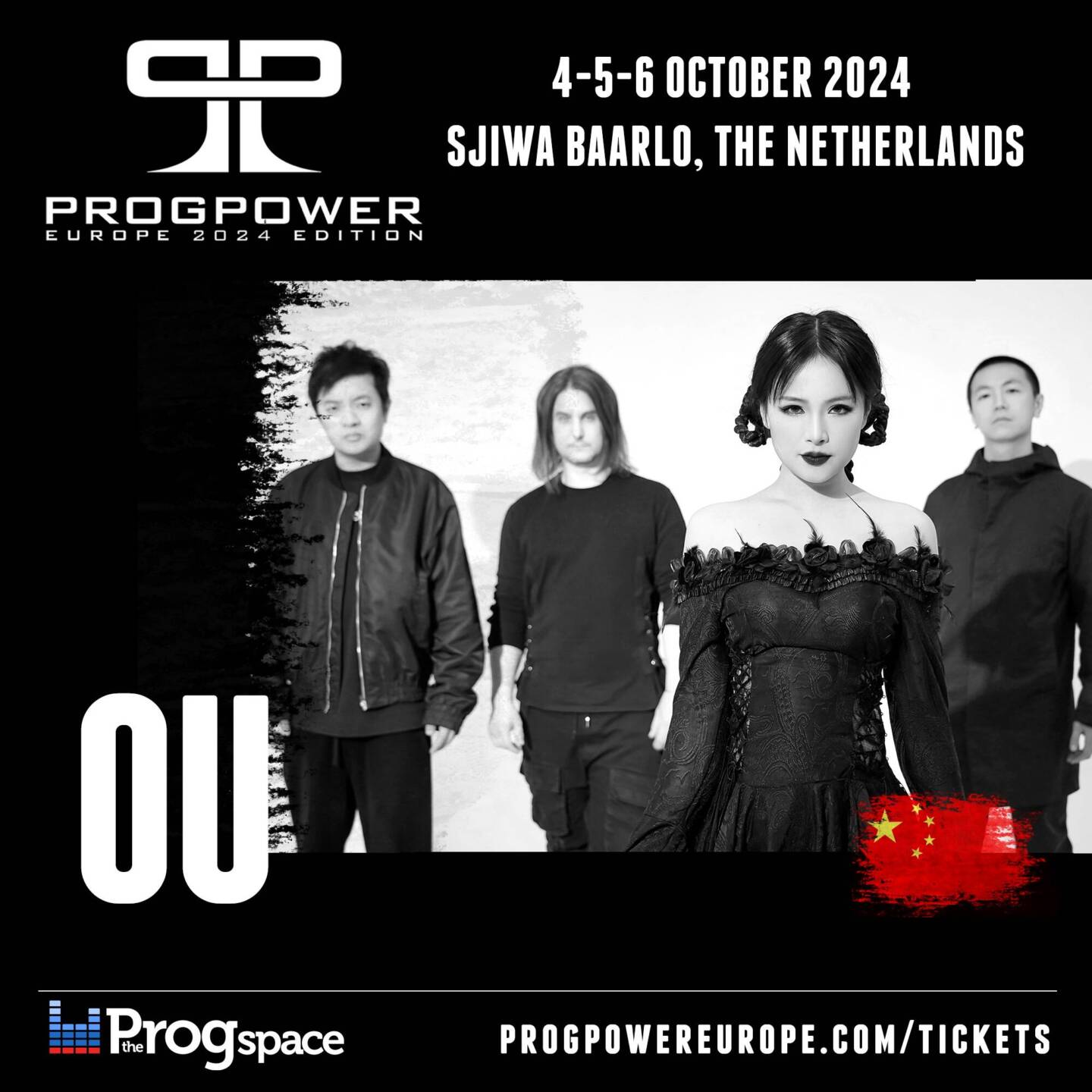
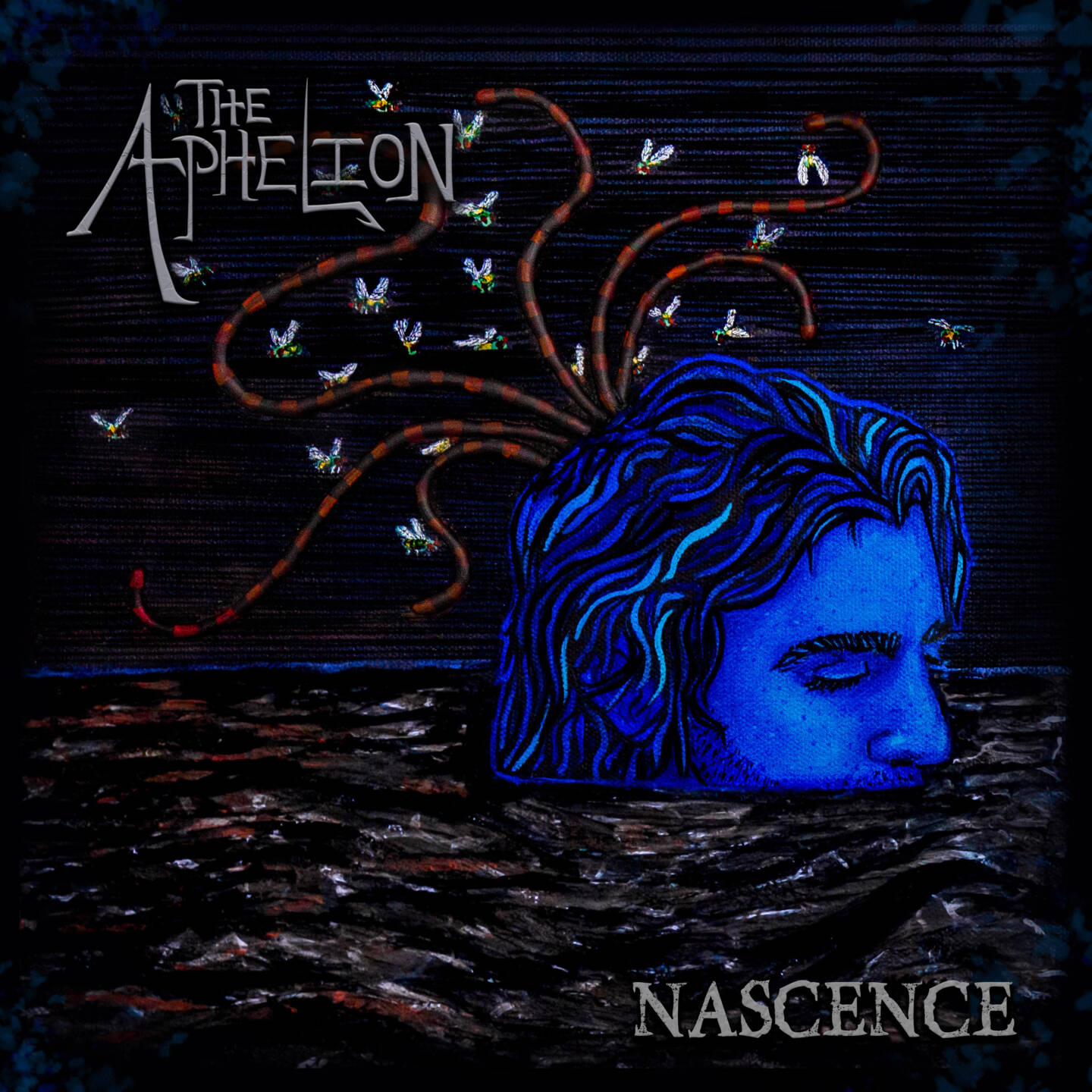
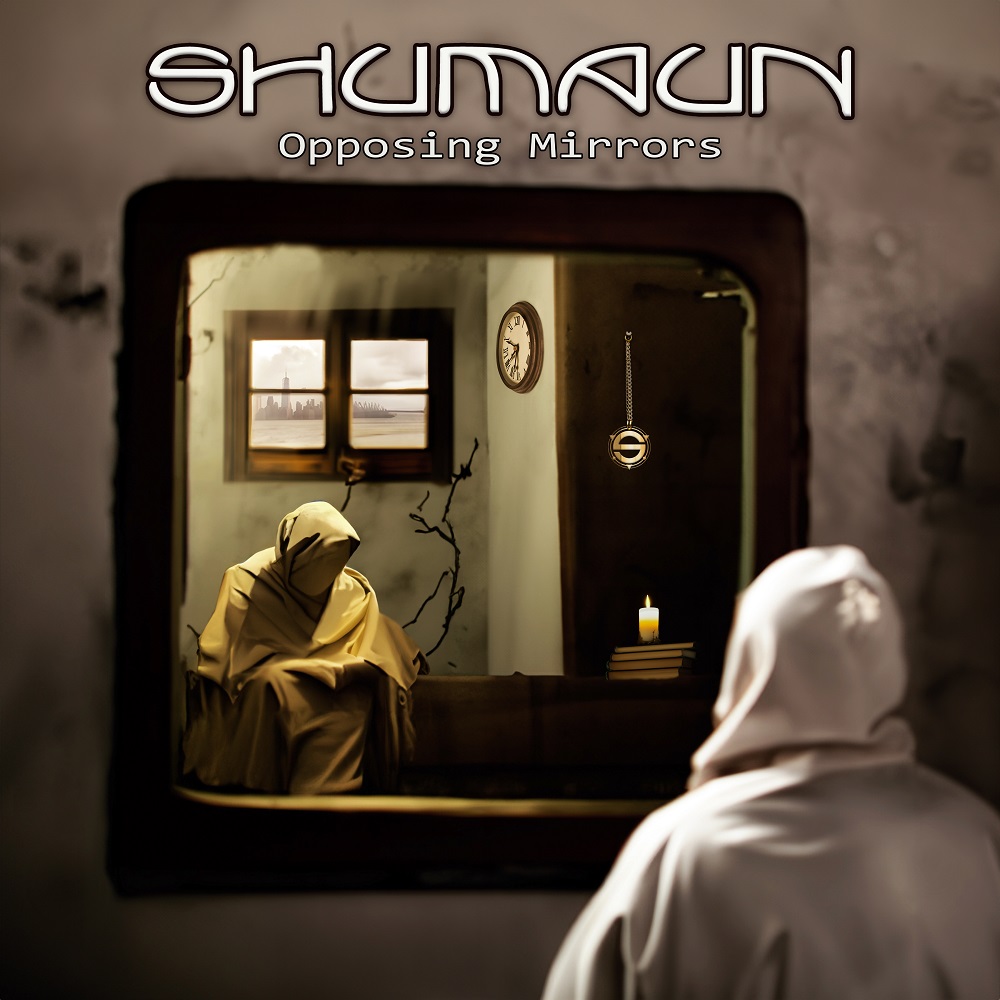
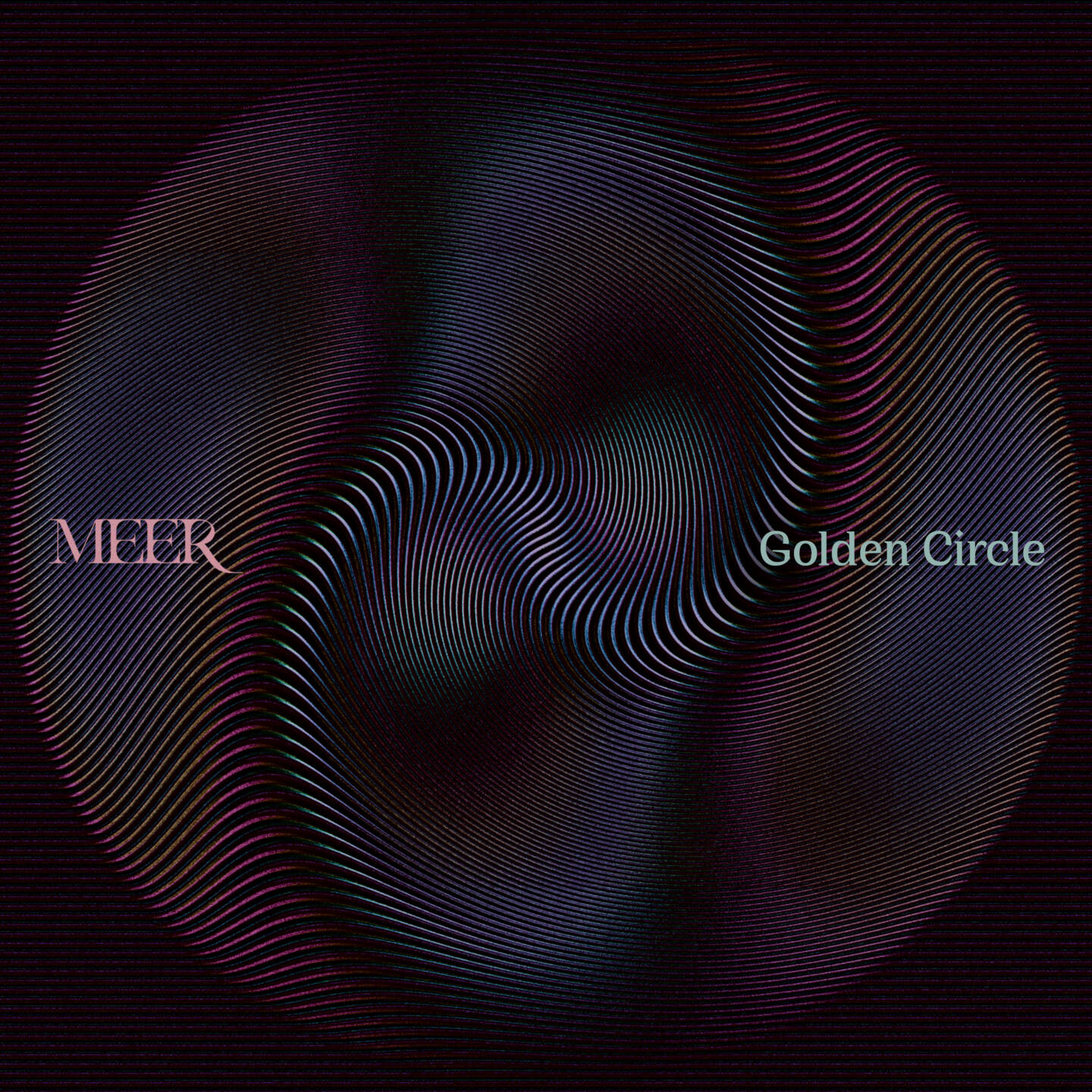
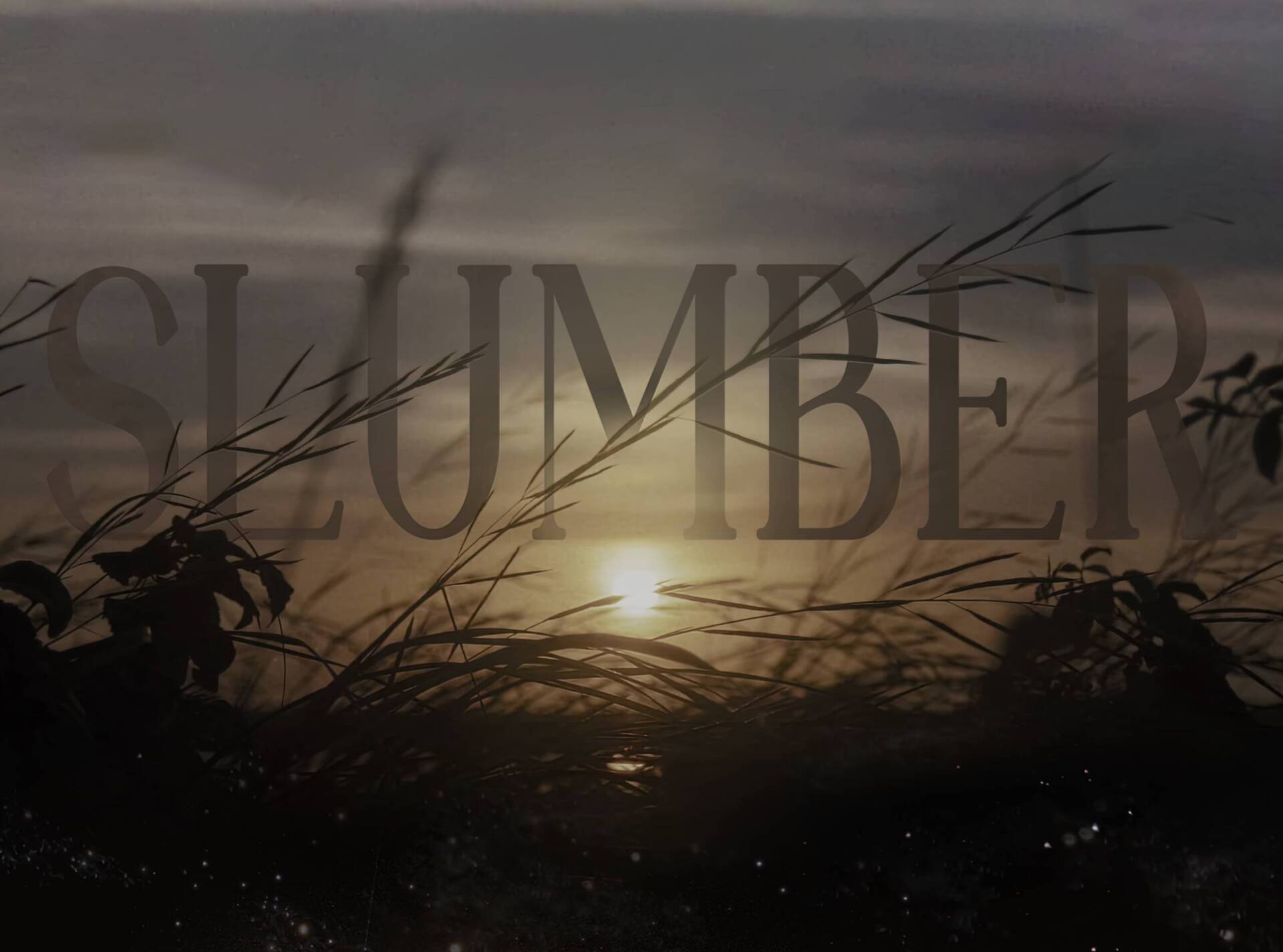
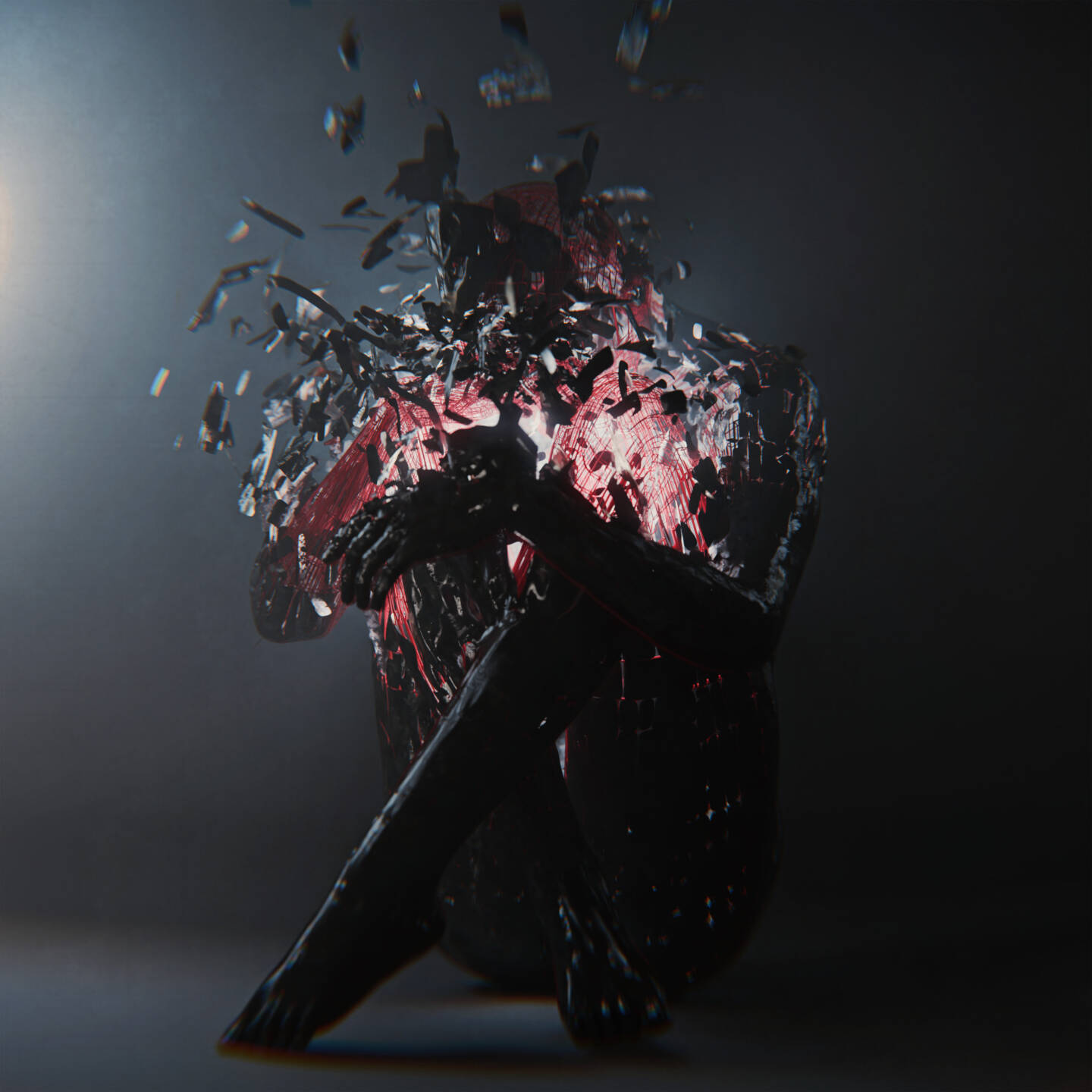
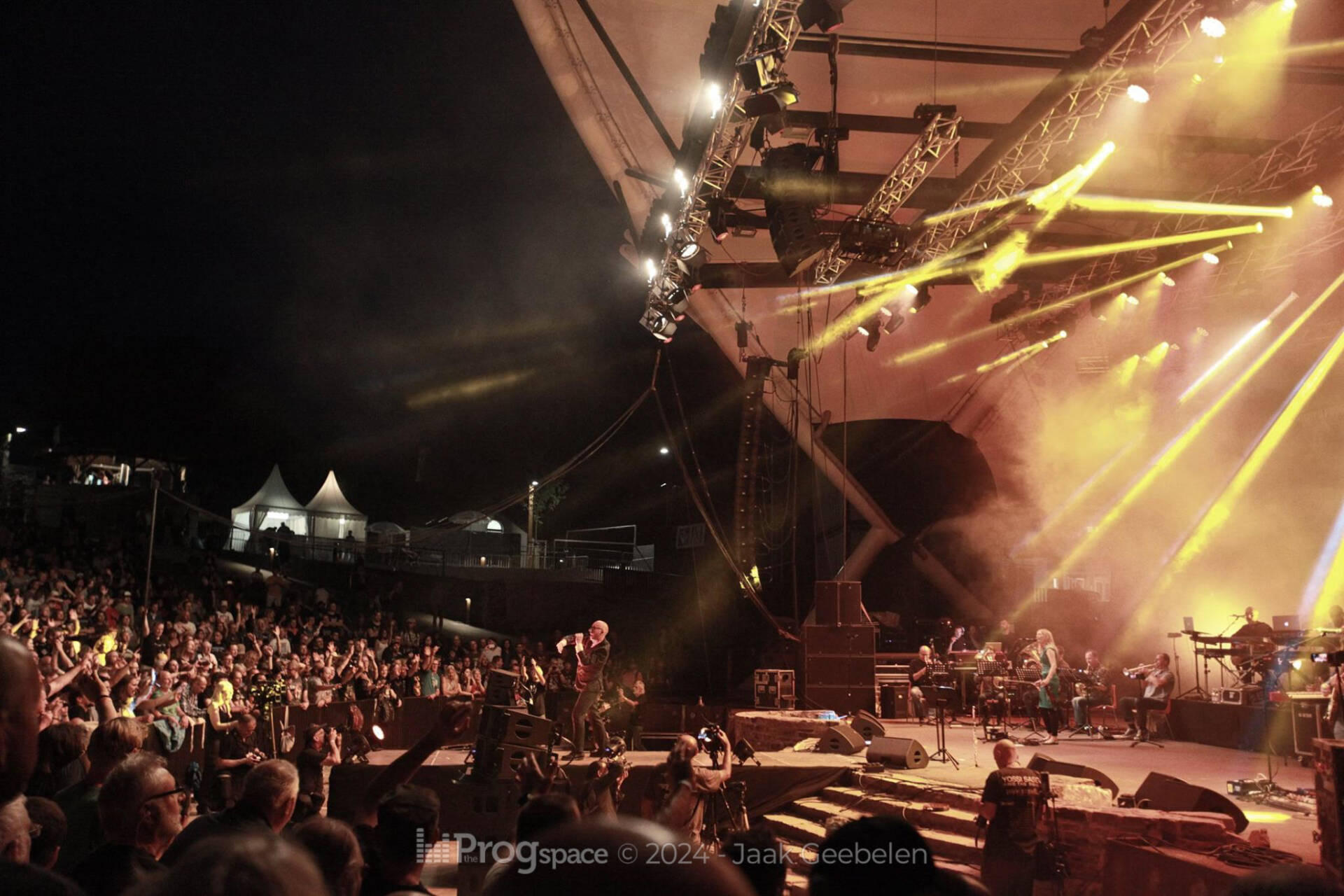
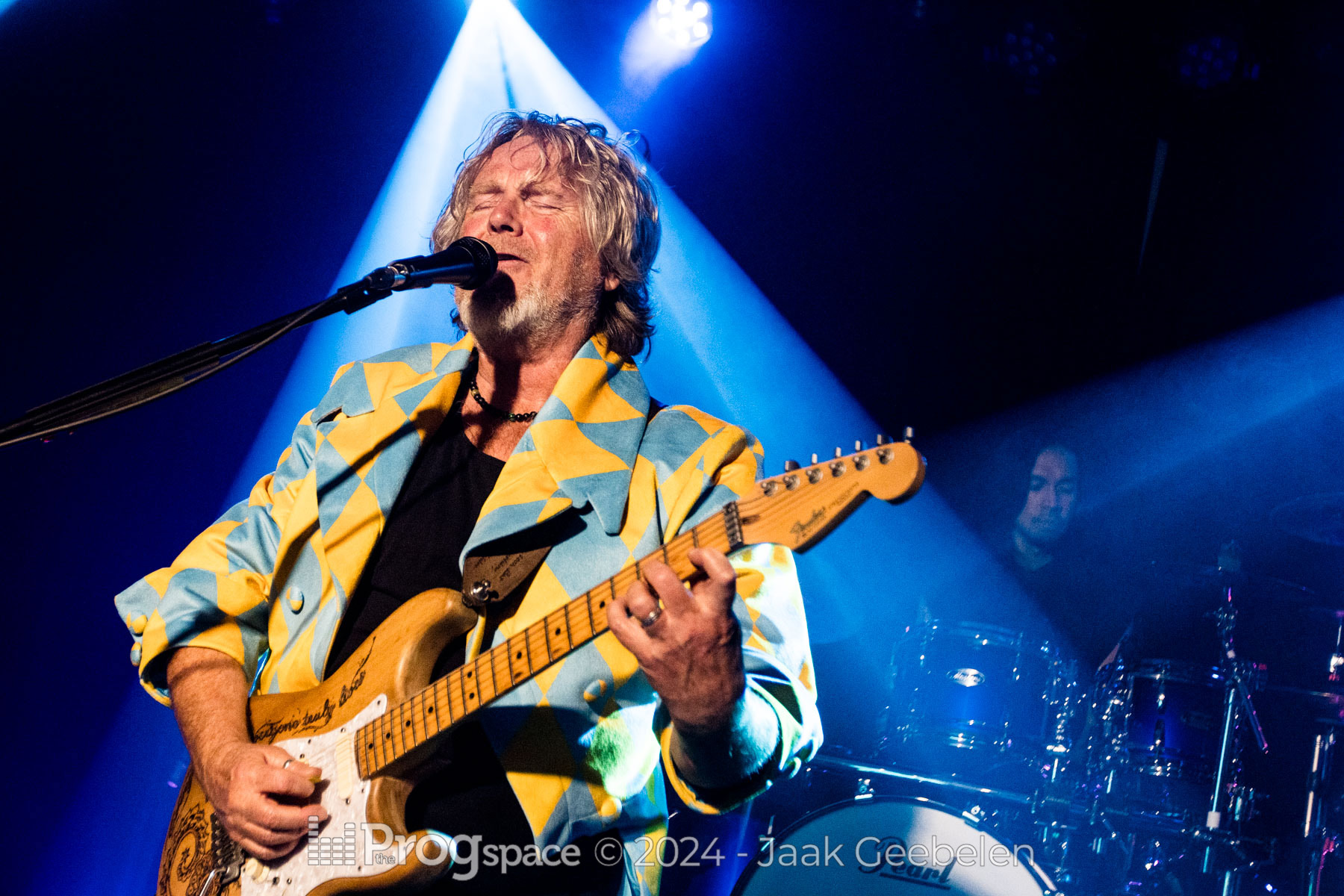
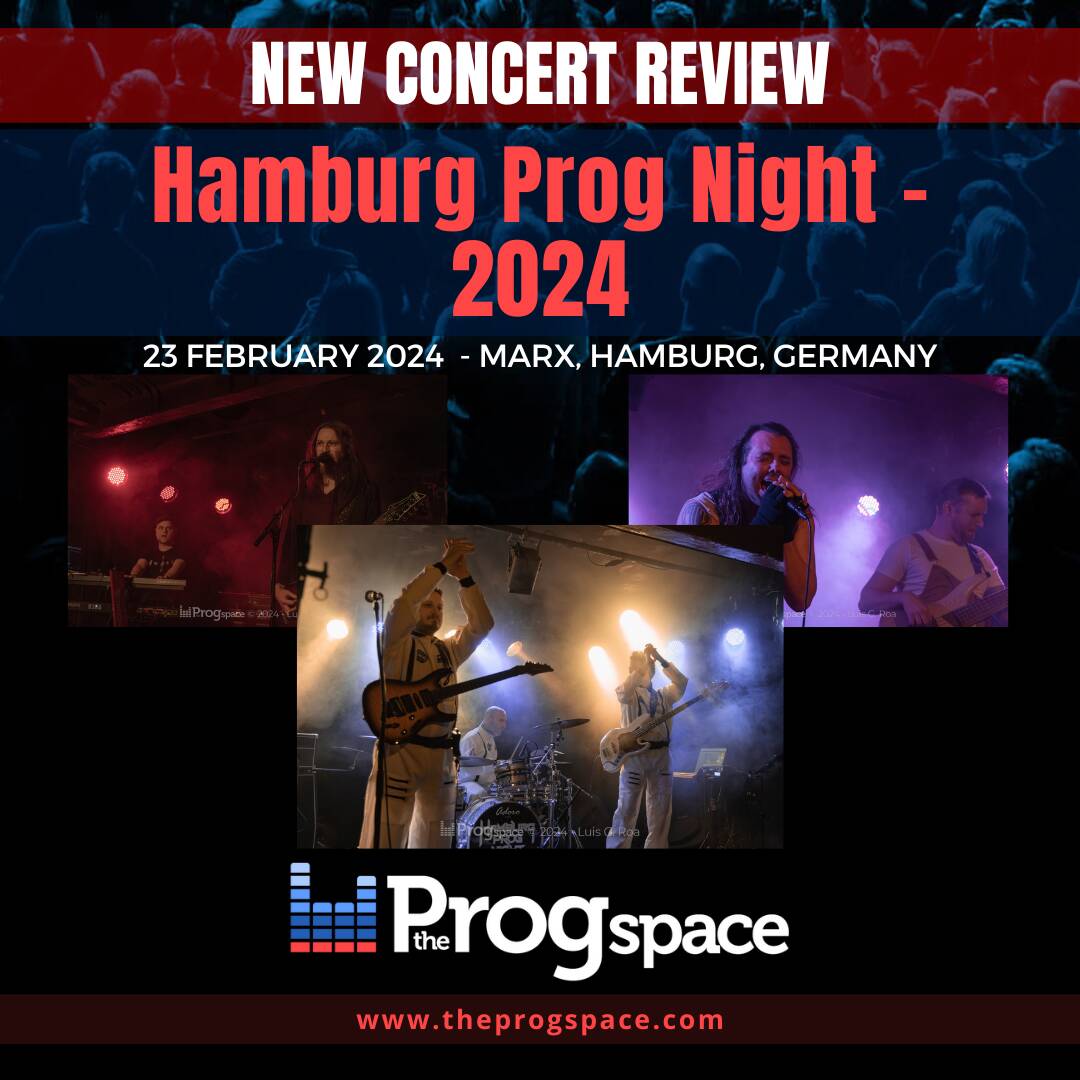

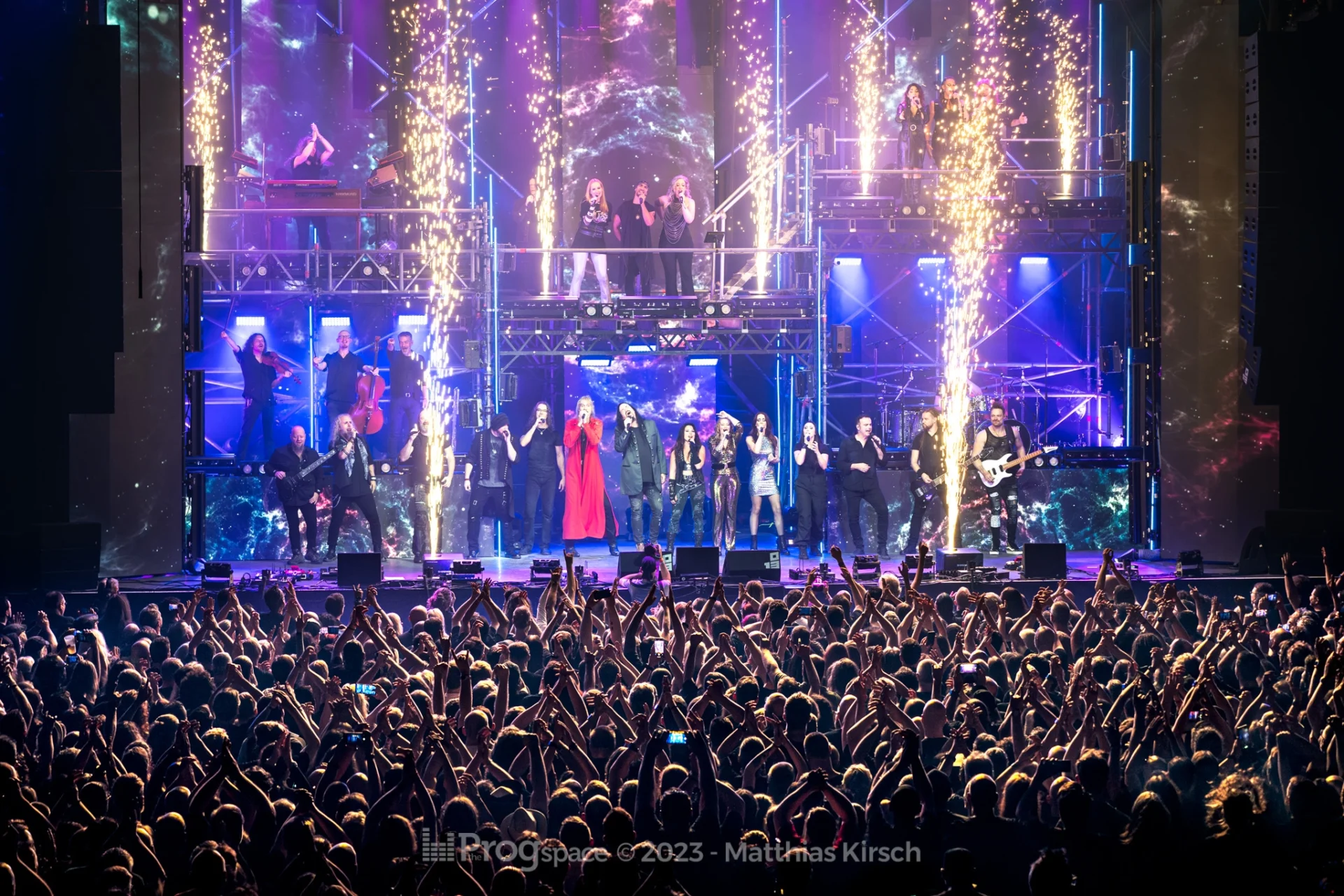
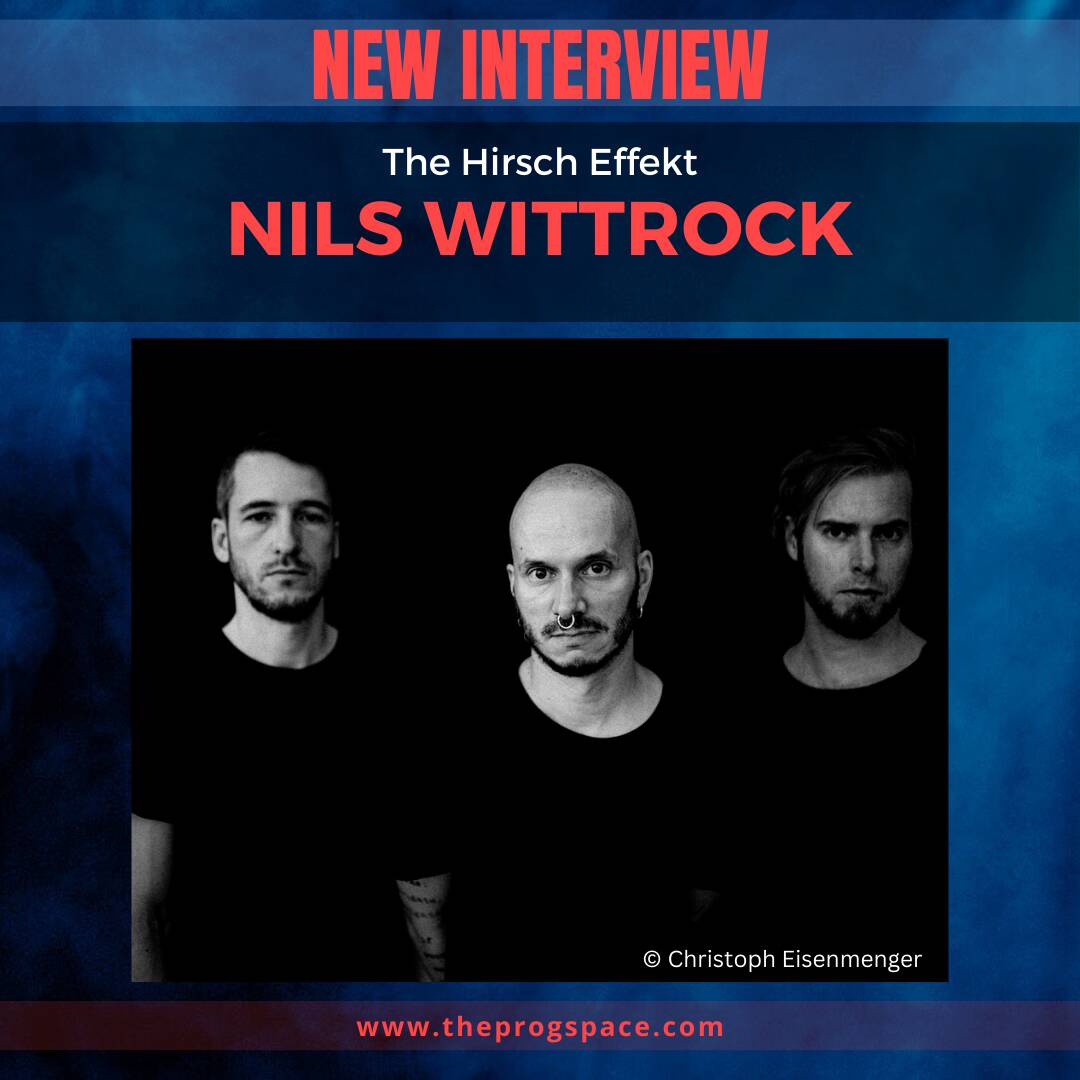
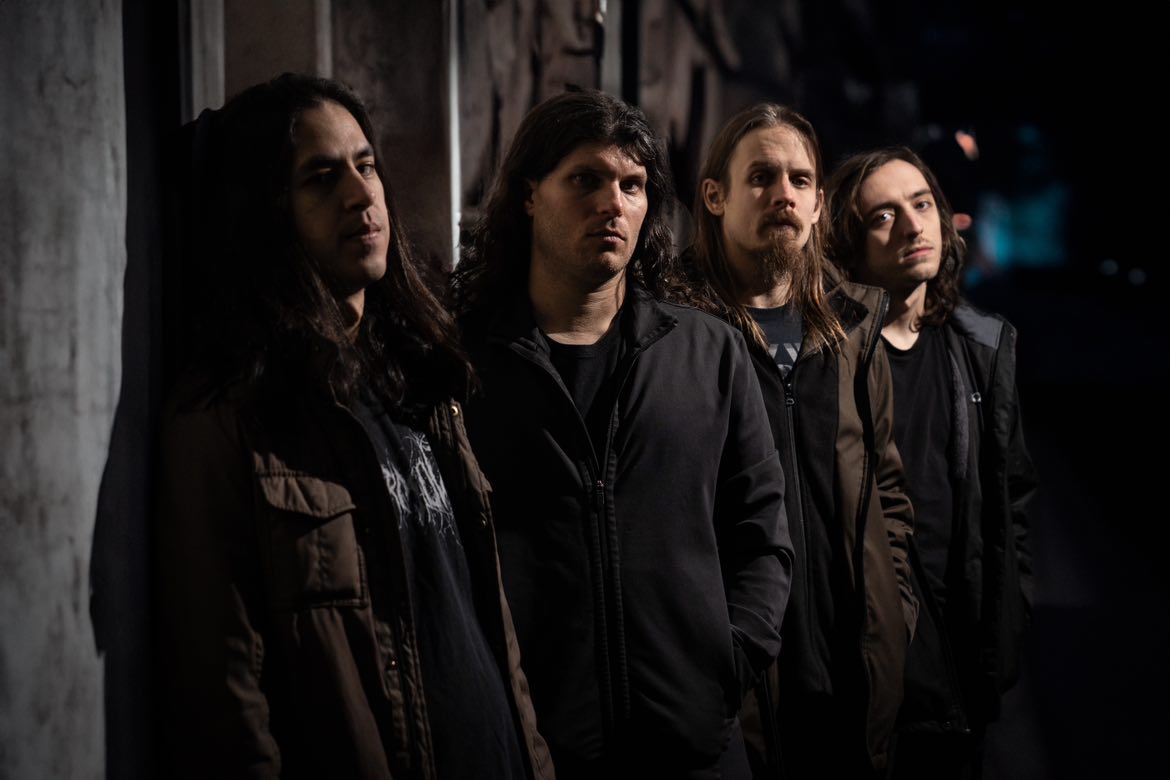
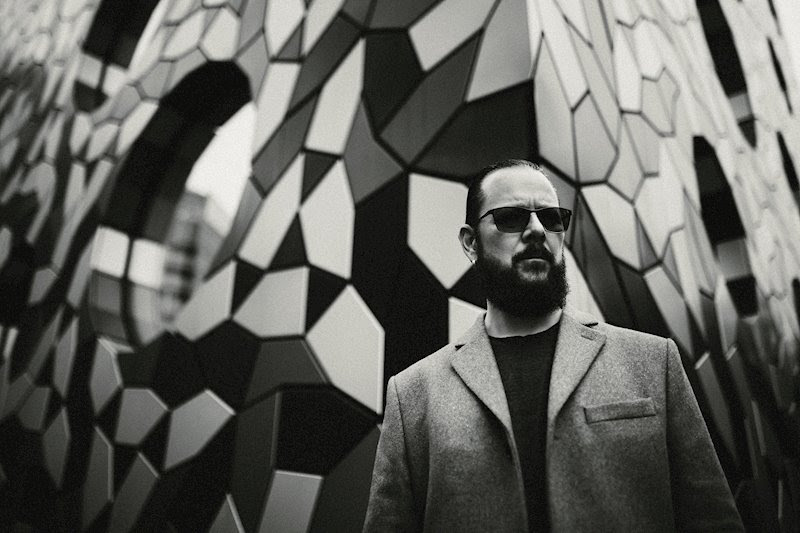
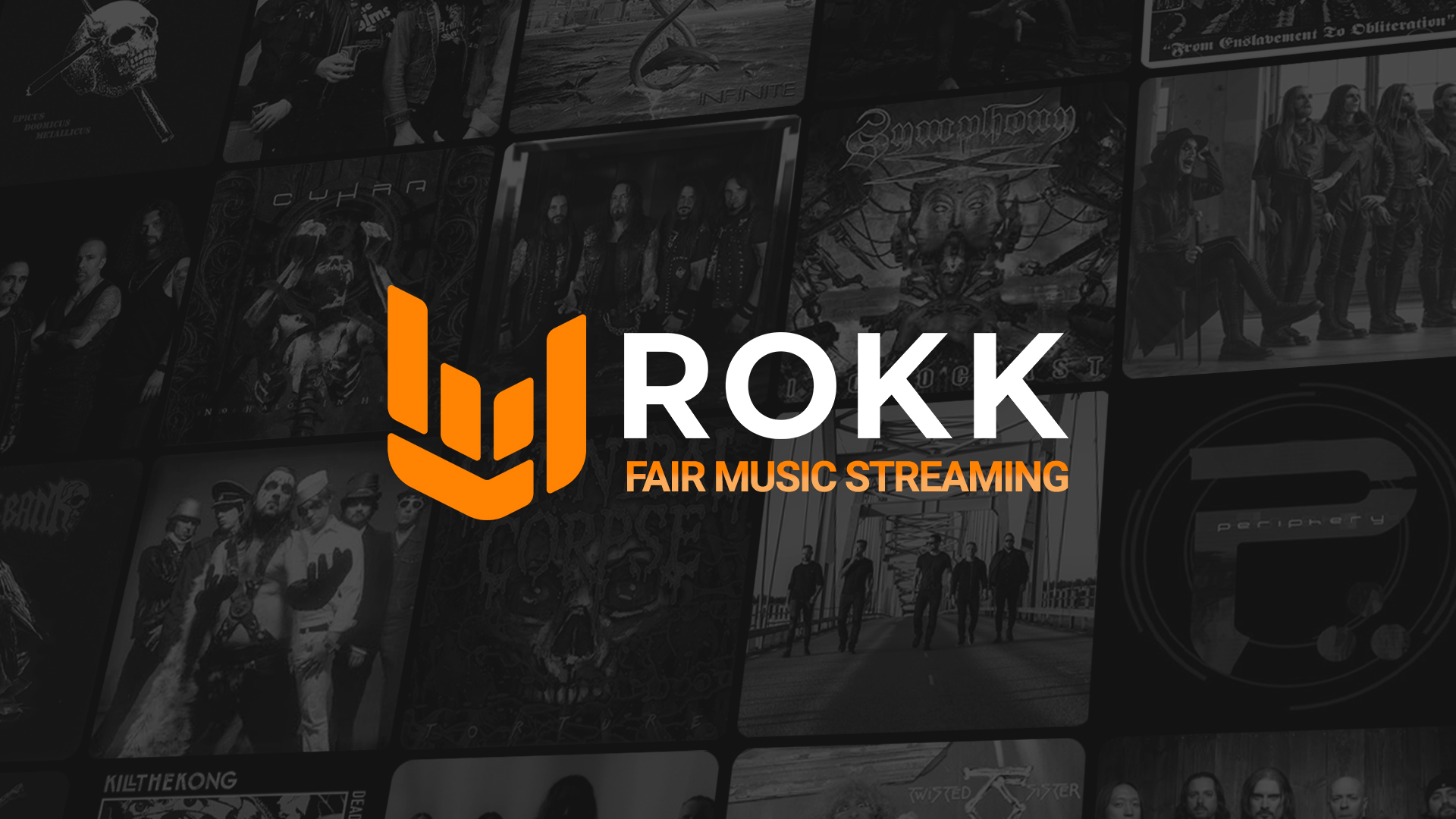
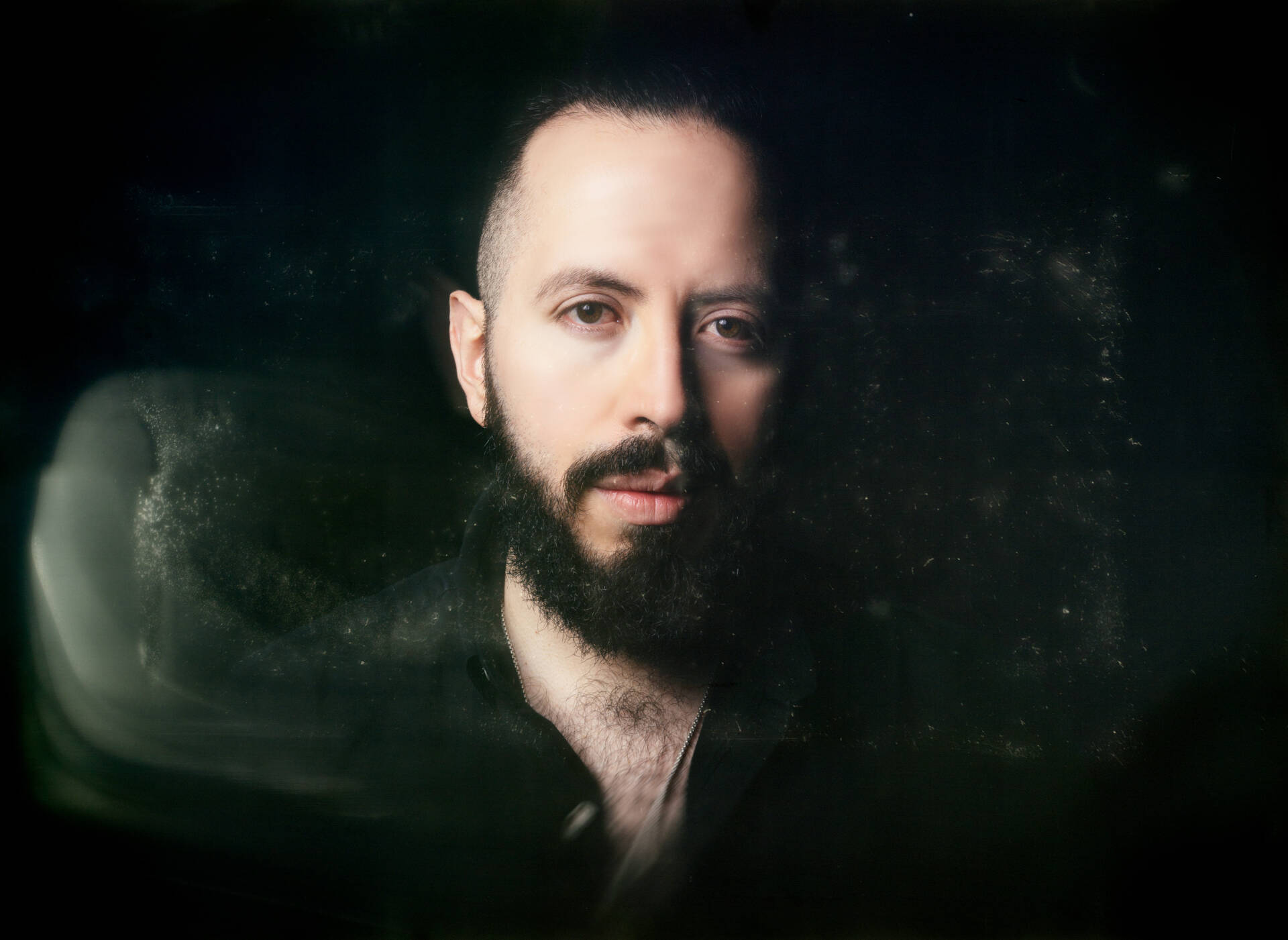
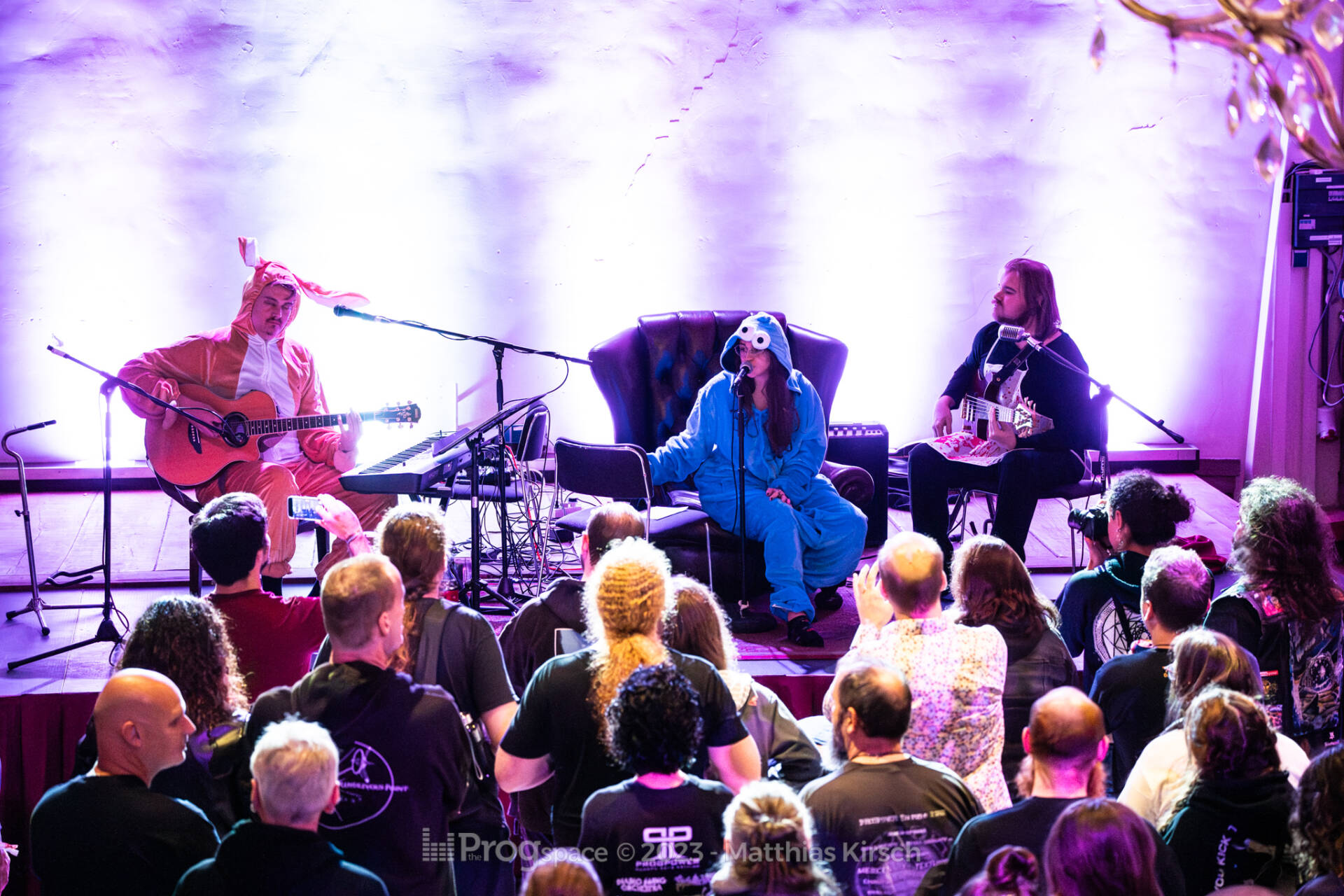
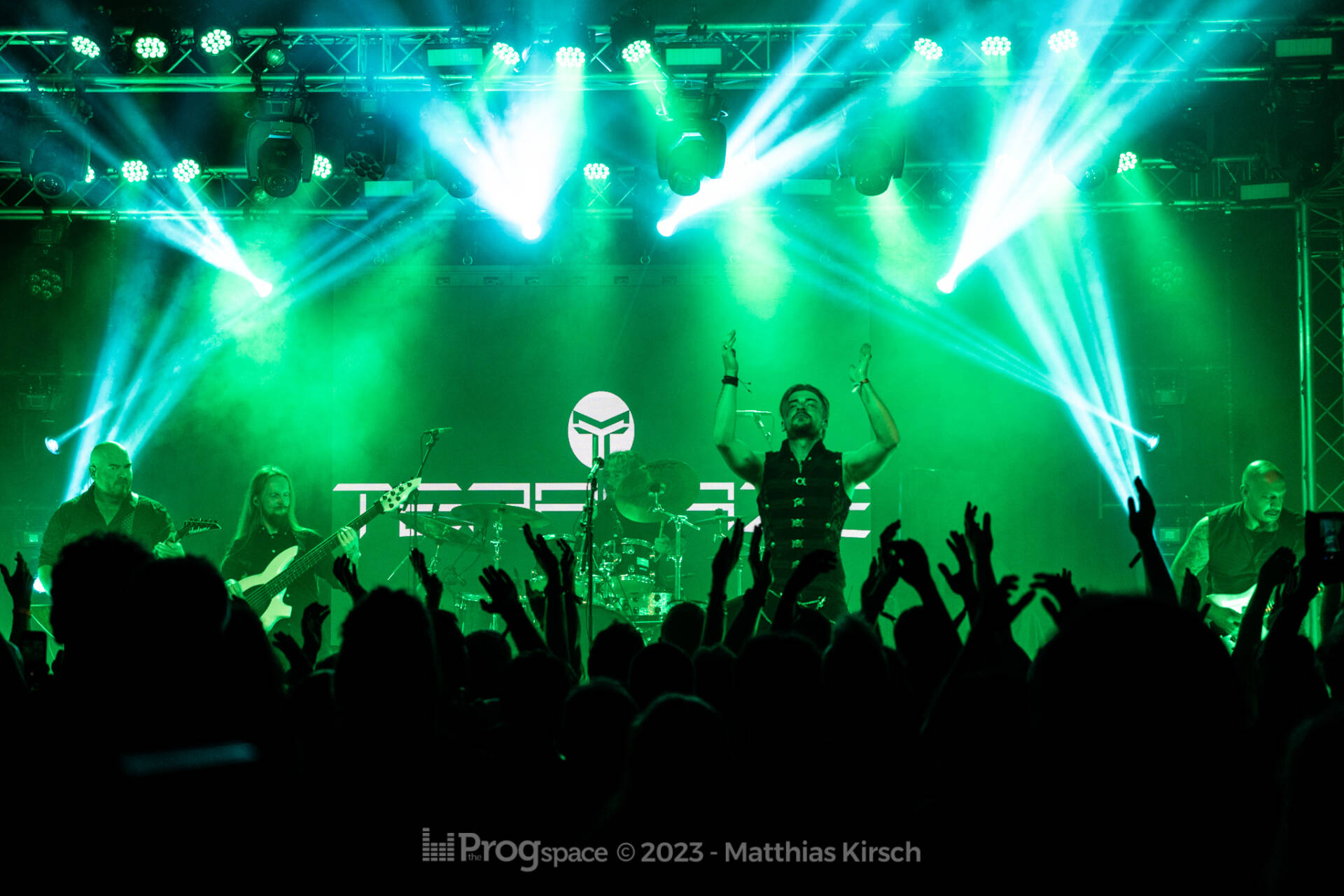
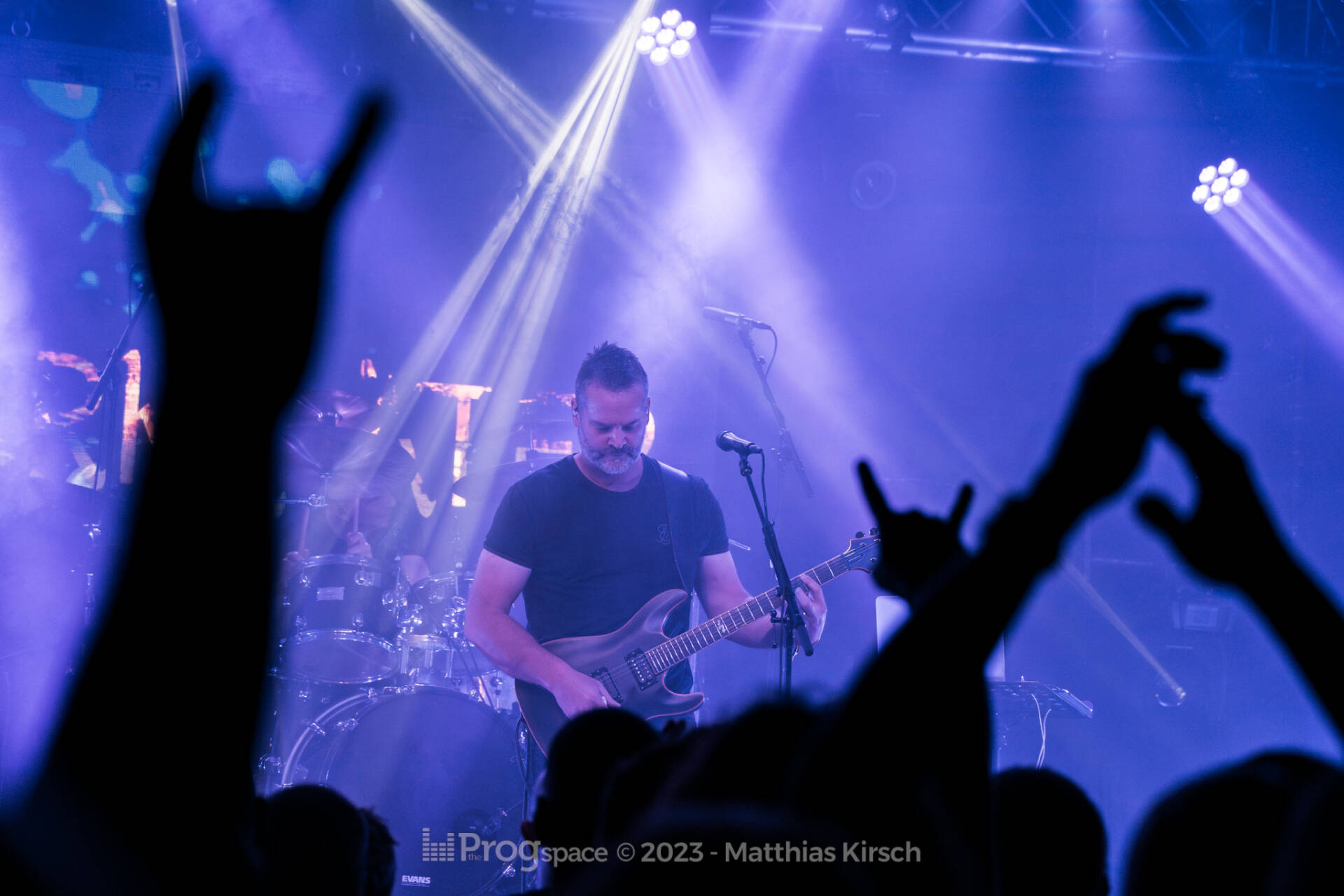
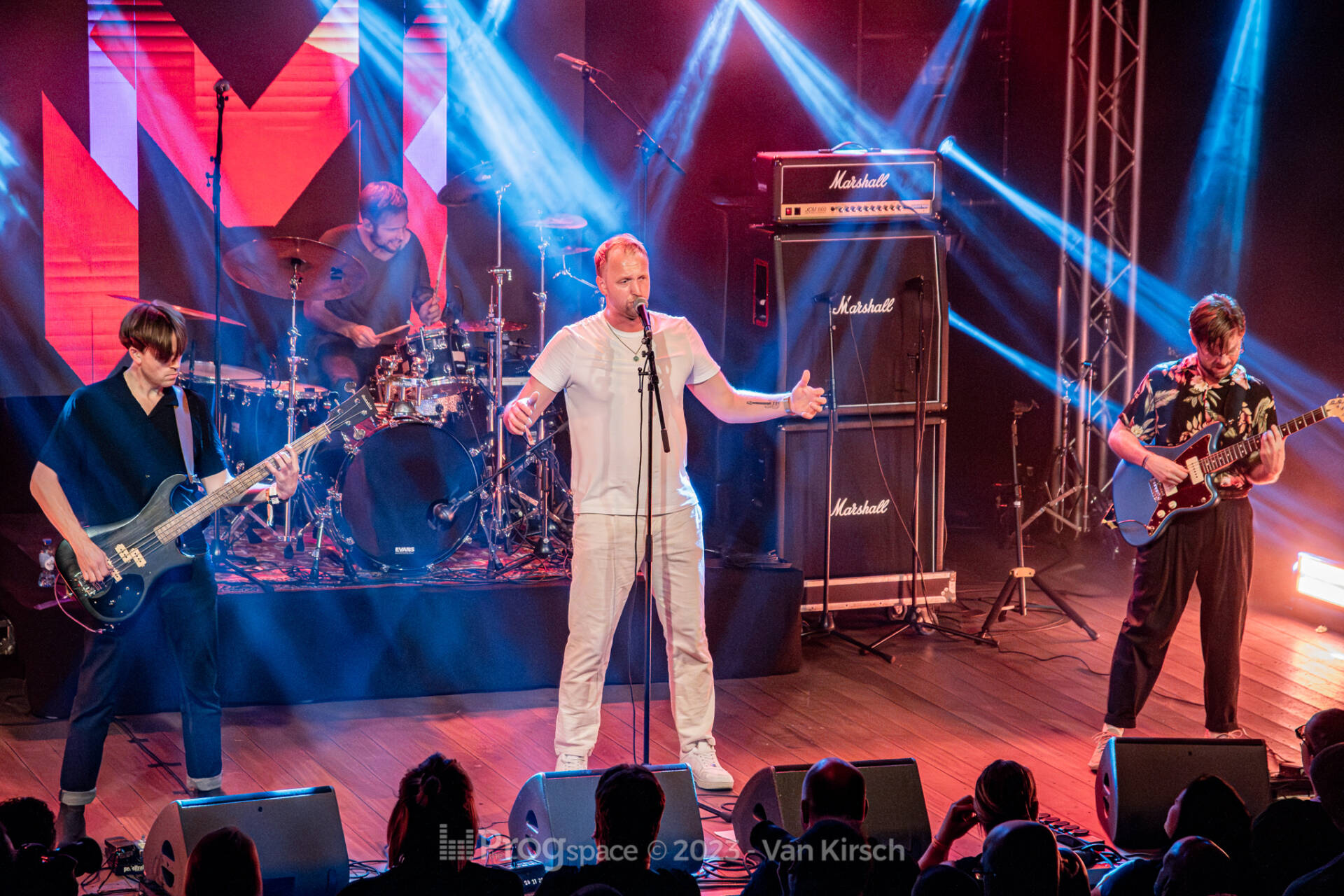
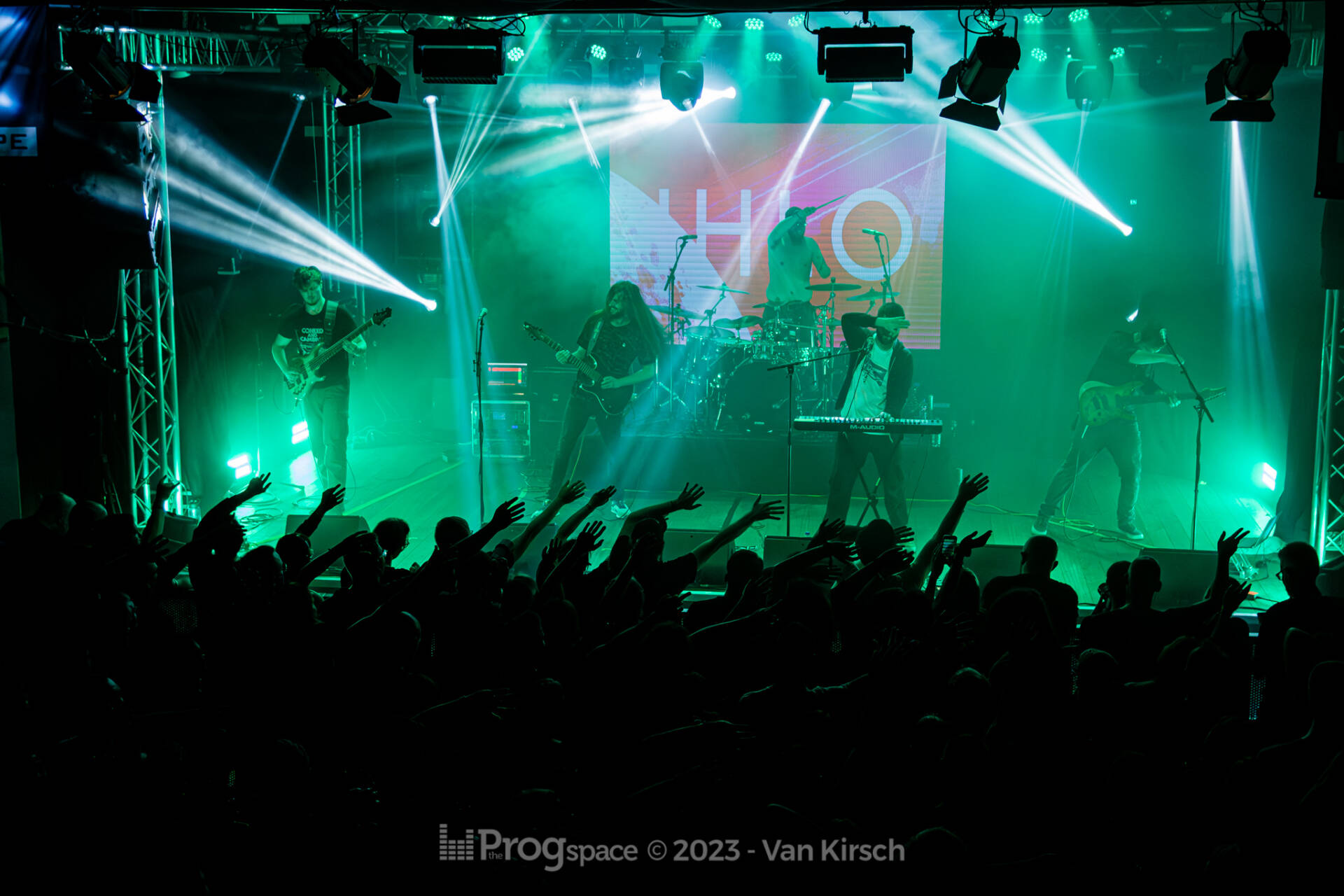
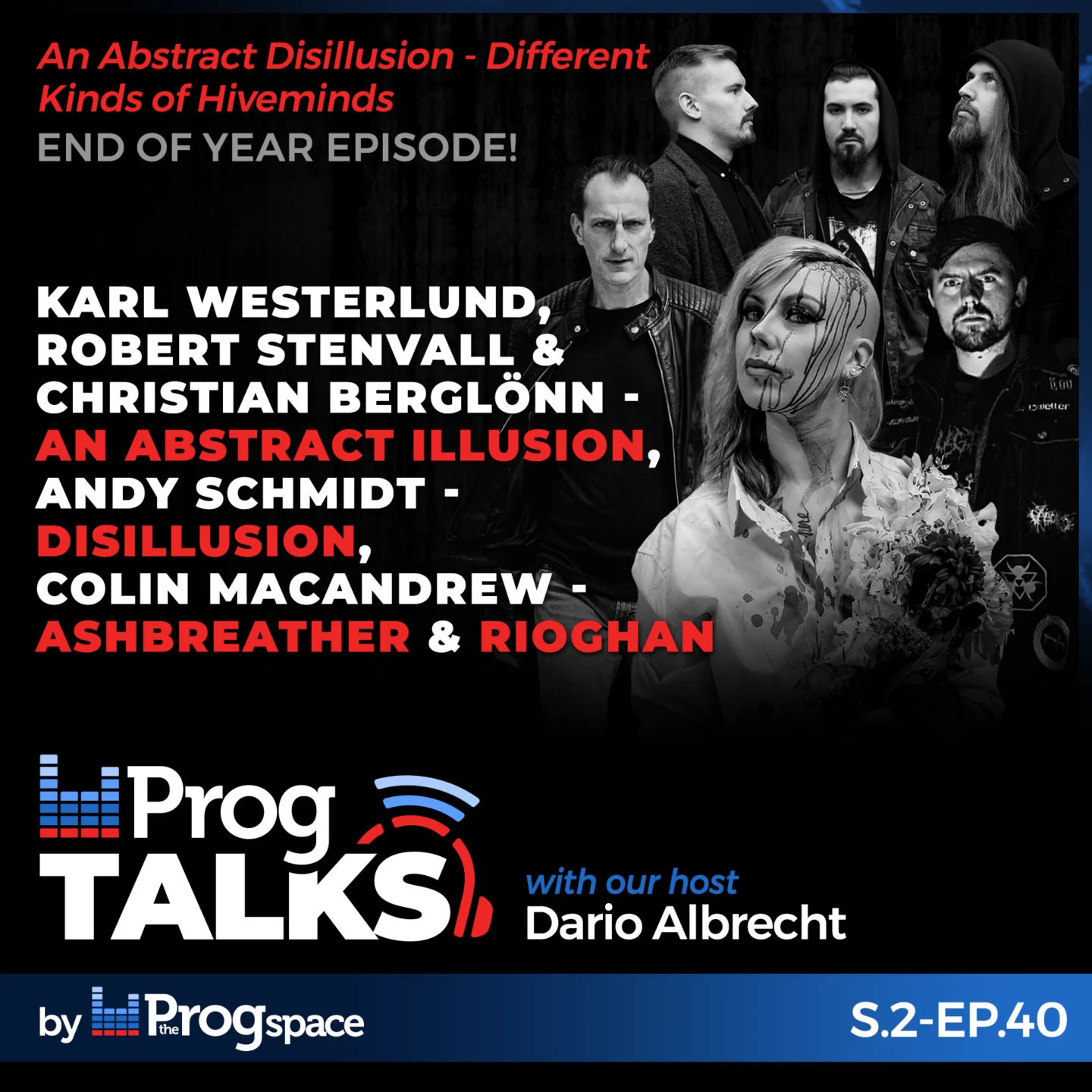
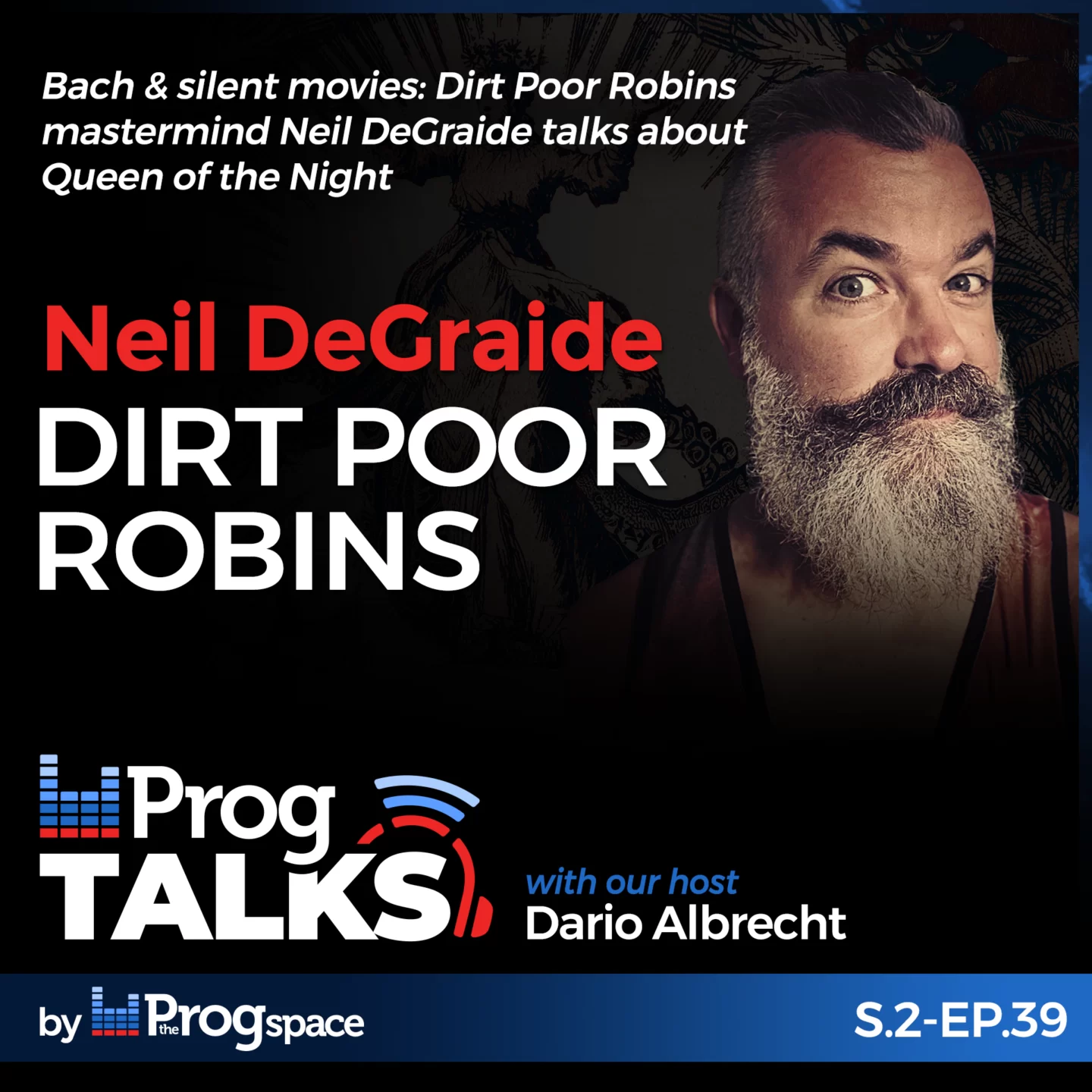
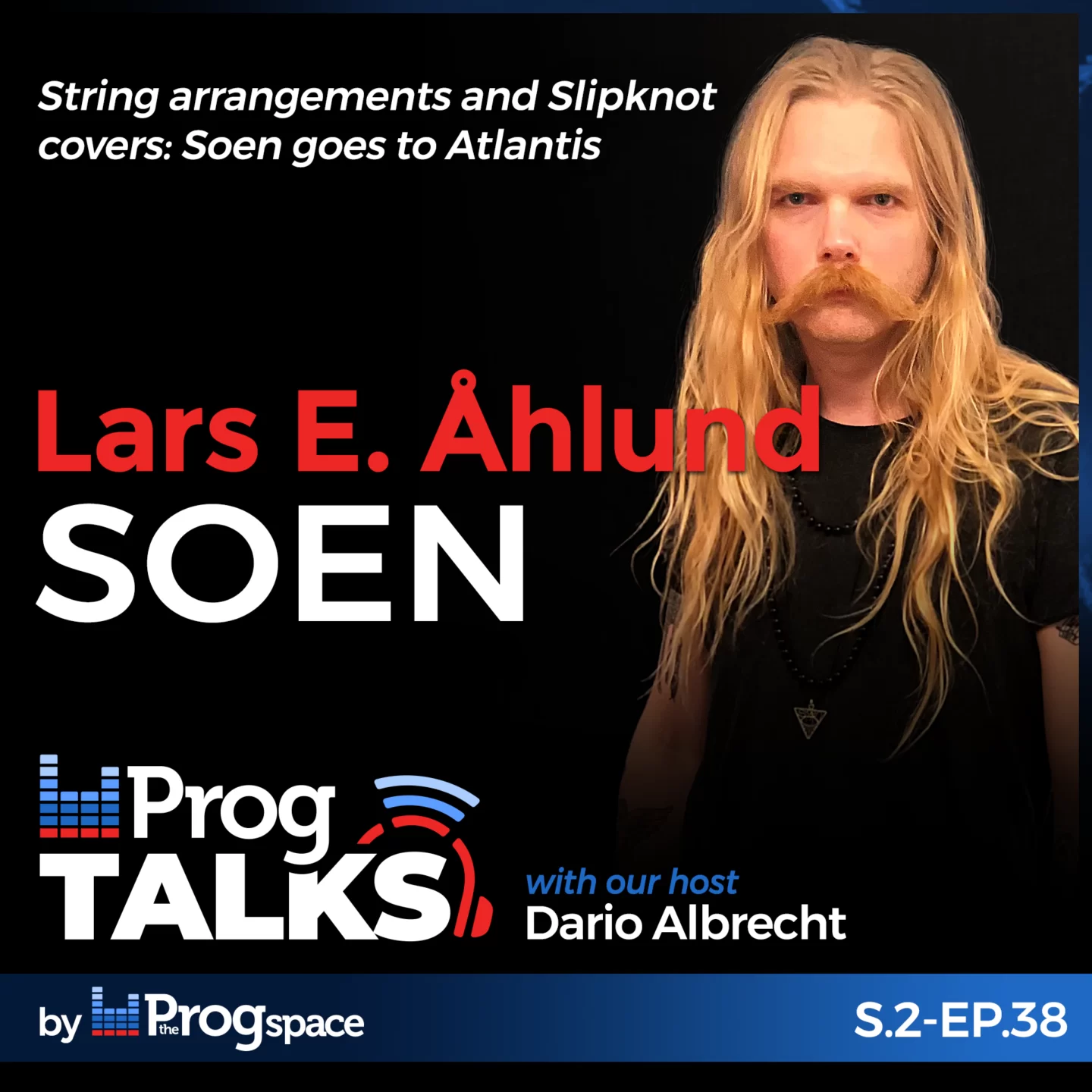
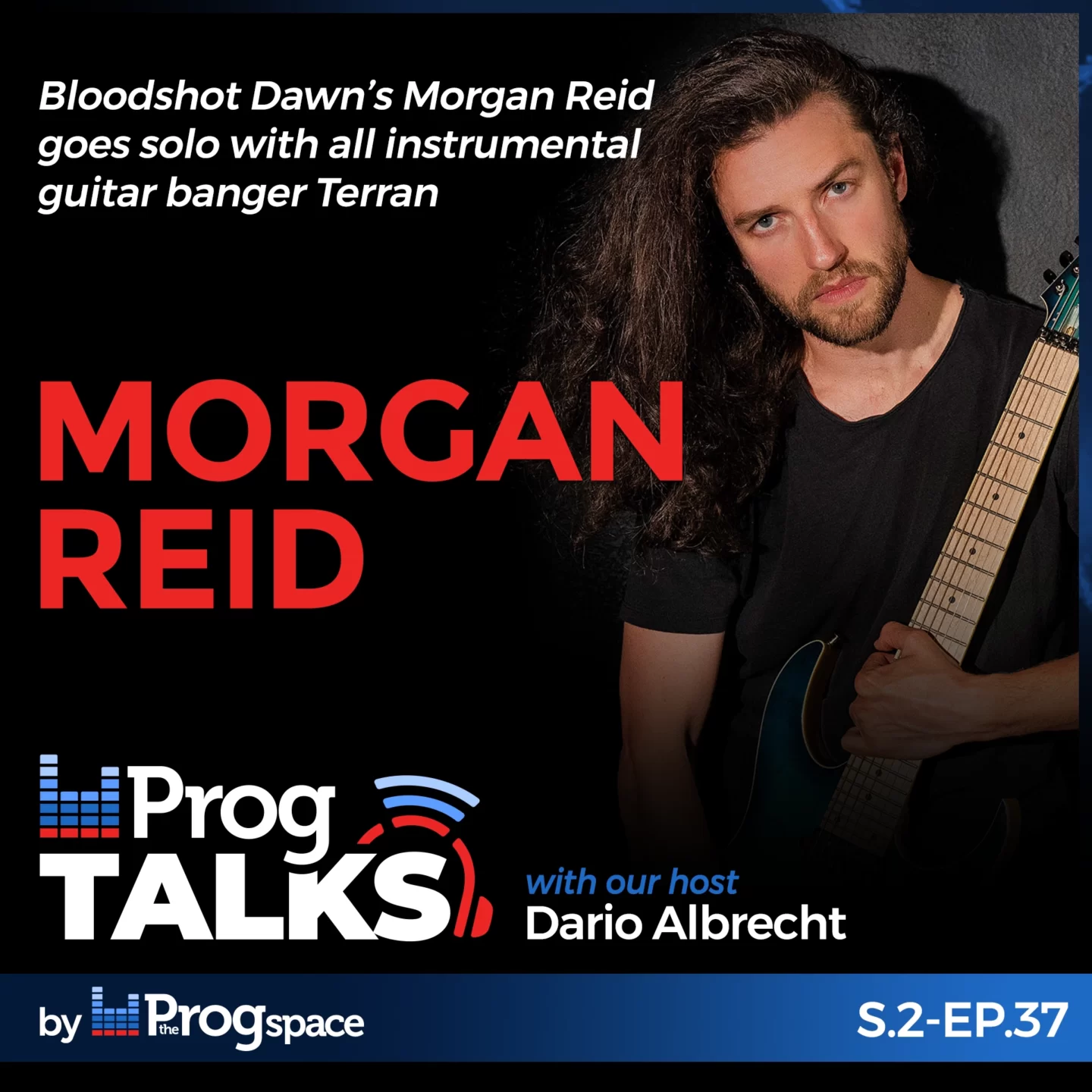
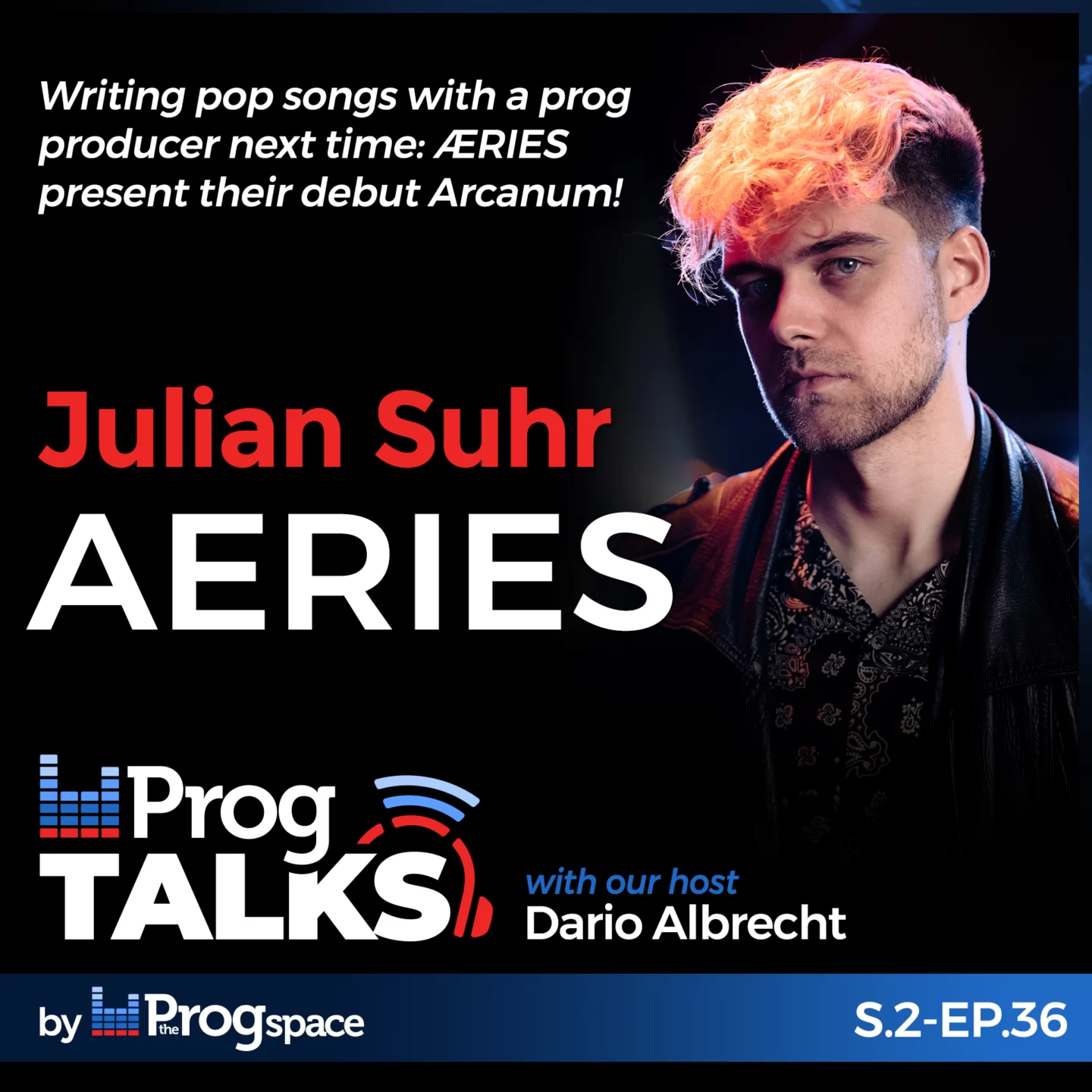
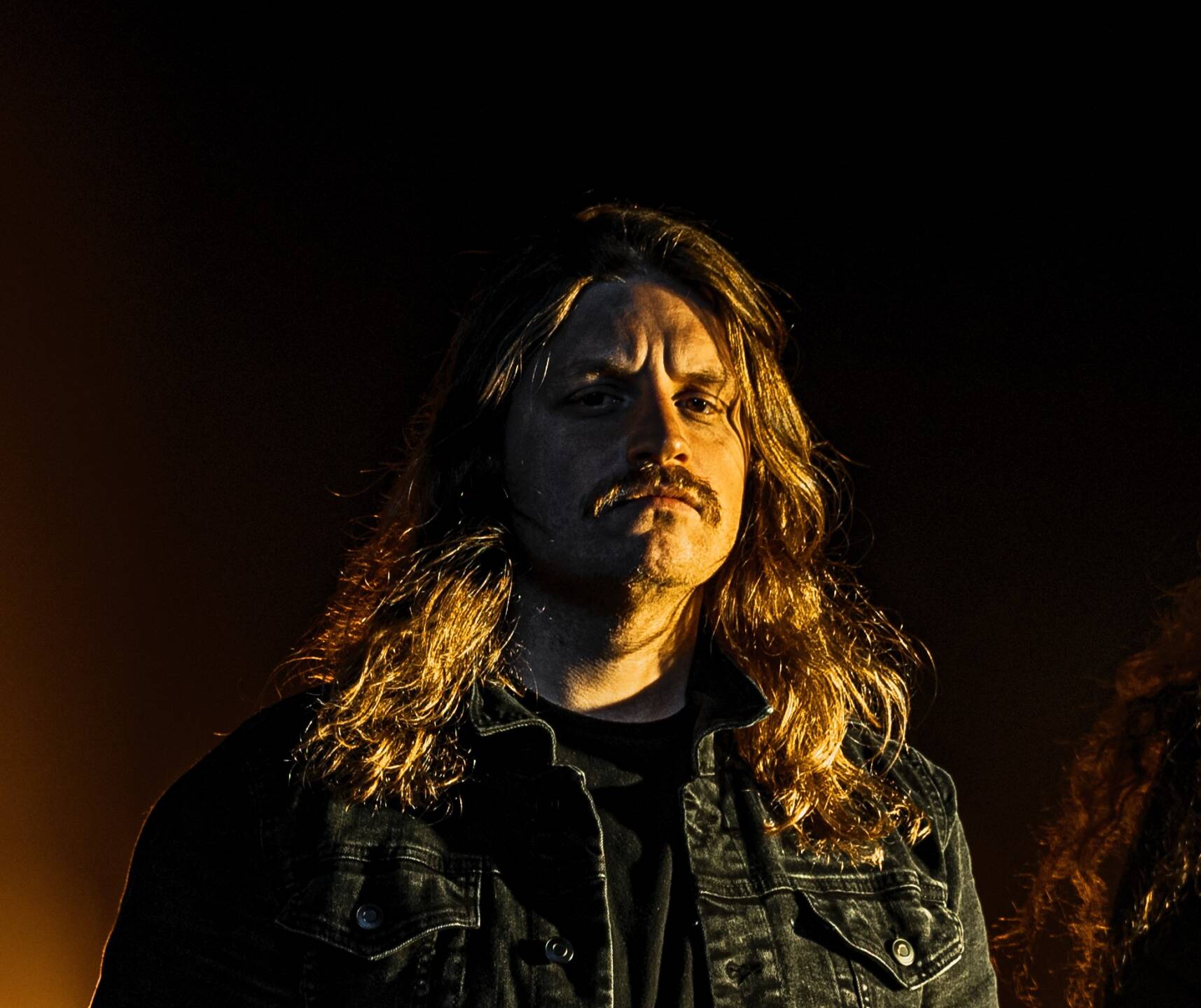
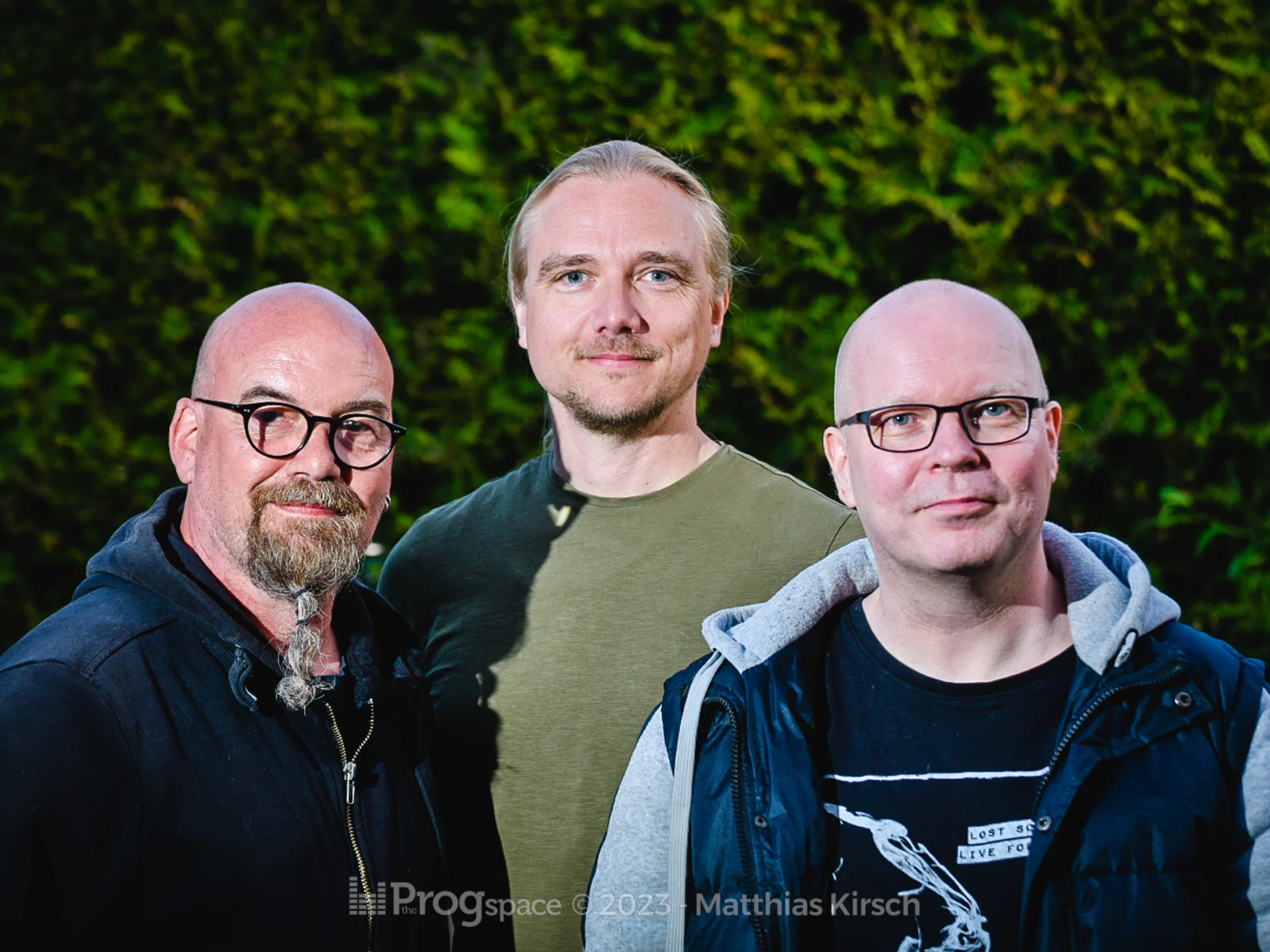
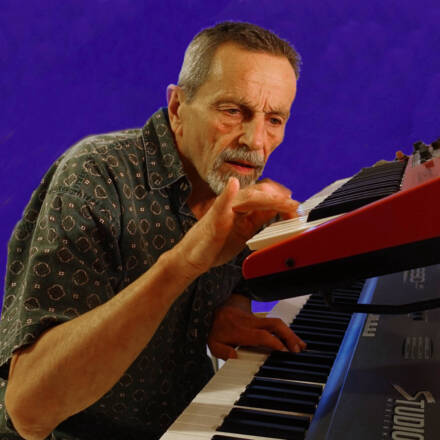
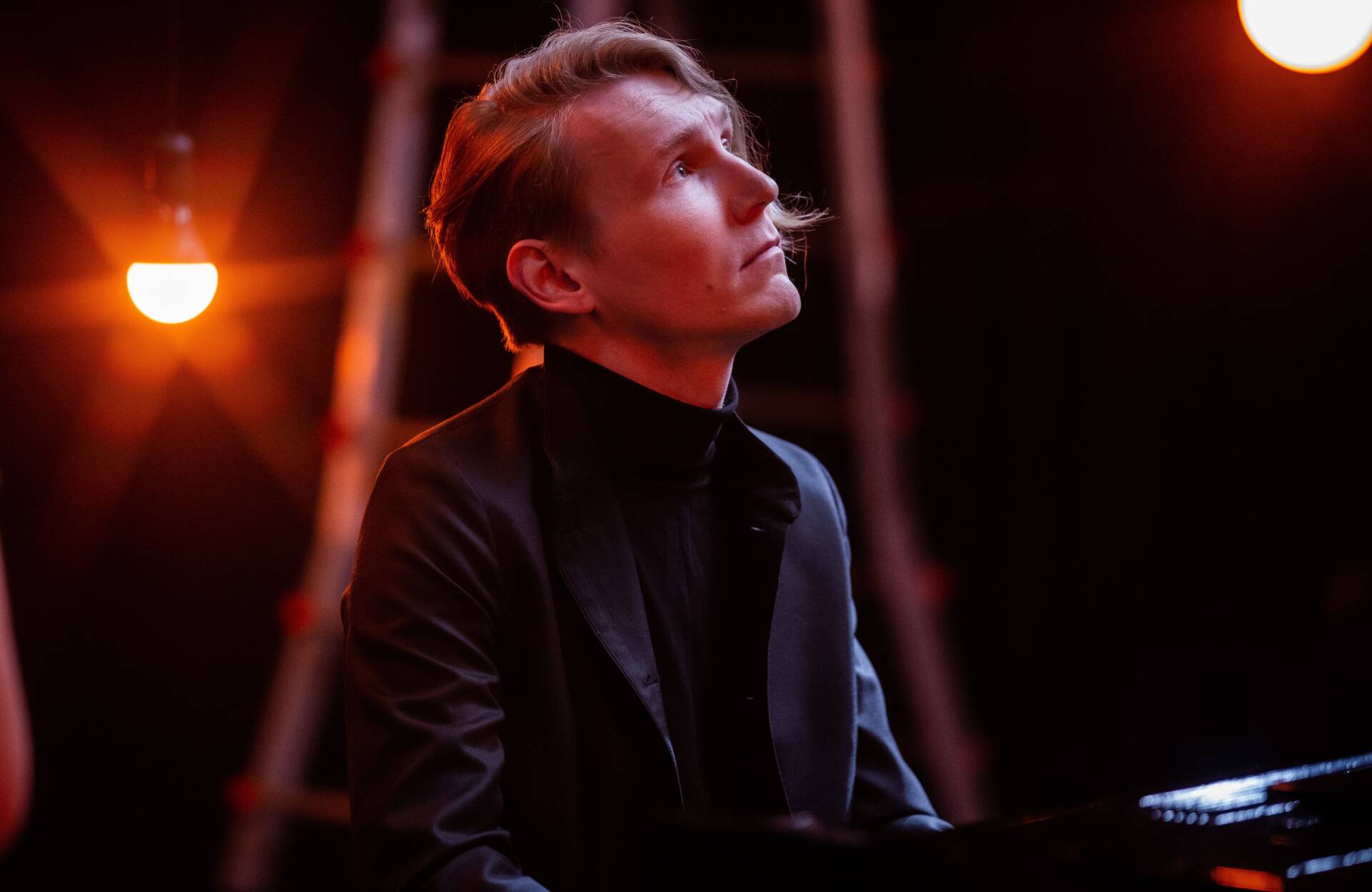


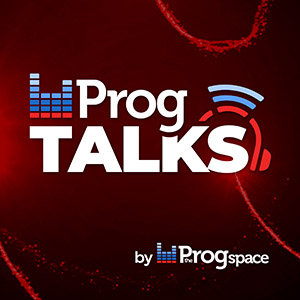
 We’re a group of Prog-lovers who started a journey to share with you our thoughts about albums, concerts, tours and festivals, the photo galleries of the Prog concerts we visit, as well interviews with upcoming or established musicians or prog-related people. Follow our Facebook page for frequent updates and news around the Progniverse.
We’re a group of Prog-lovers who started a journey to share with you our thoughts about albums, concerts, tours and festivals, the photo galleries of the Prog concerts we visit, as well interviews with upcoming or established musicians or prog-related people. Follow our Facebook page for frequent updates and news around the Progniverse.